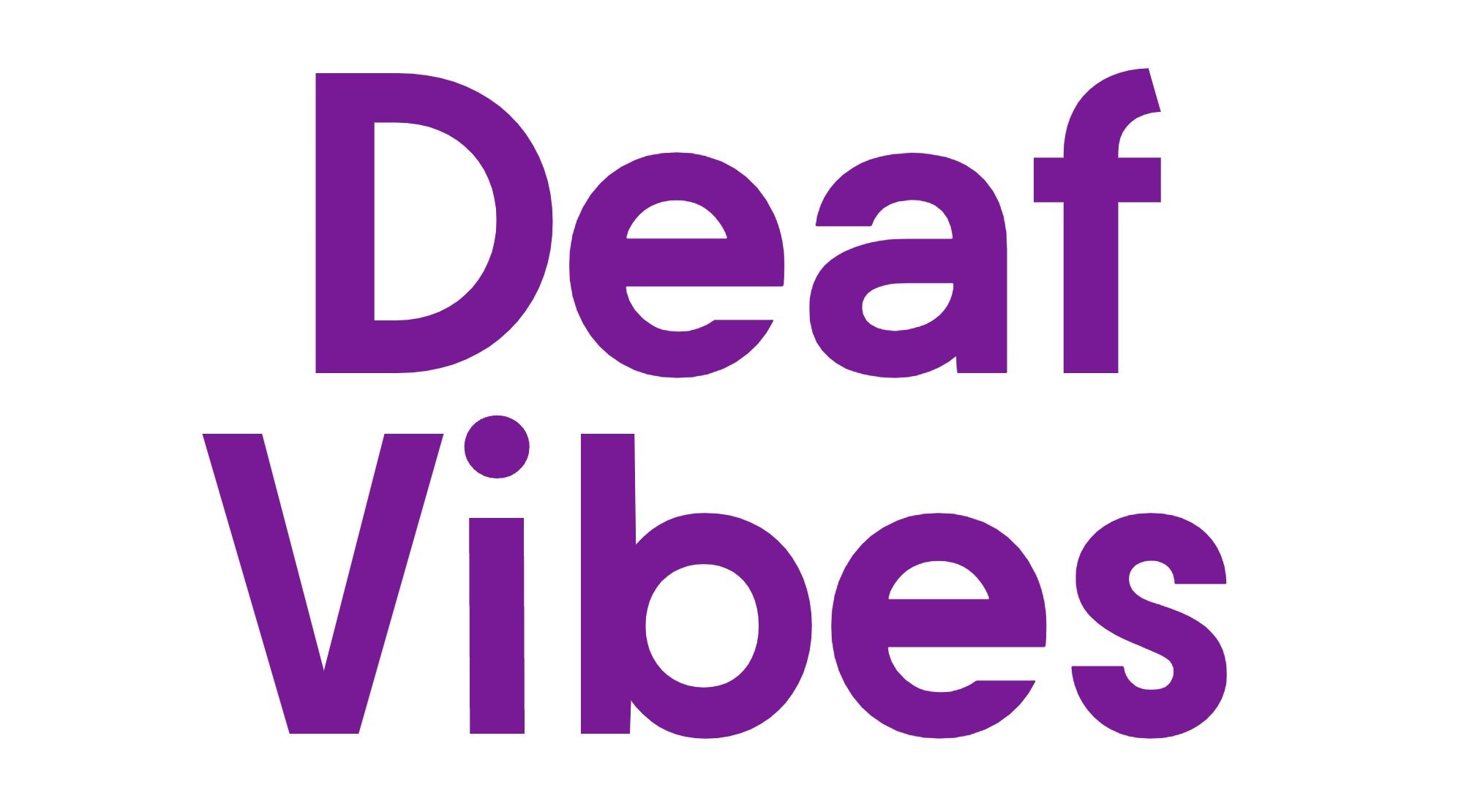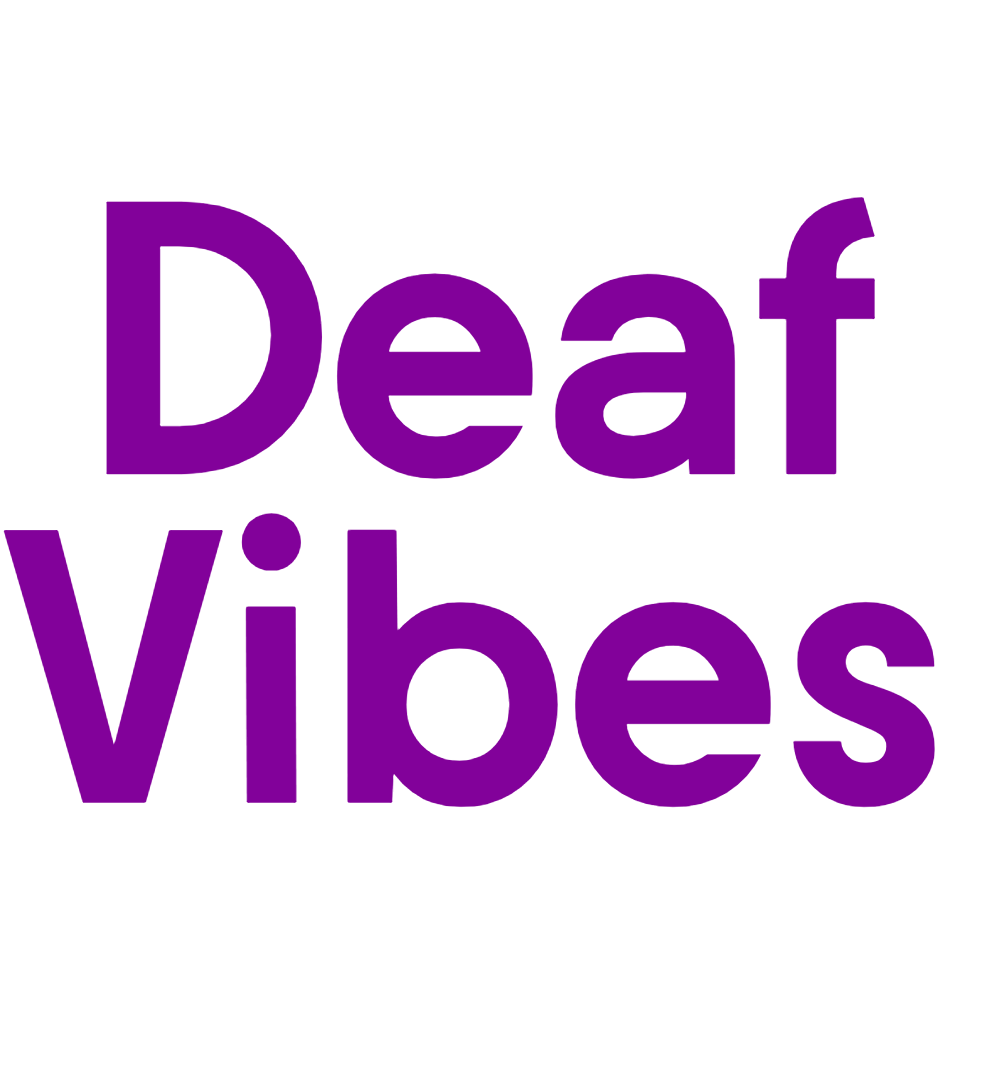Living with Hearing Loss
Empowering the Deaf: How a Deaf Lawyer Can Advocate for You
Harnessing the unique perspective of a deaf lawyer, discover how their advocacy can revolutionize opportunities for the deaf community.

As an author fascinated with the influence of advocacy, we share a compelling statistic – were you aware that merely around a third of deaf individuals in the United States possess a college degree? This information underscores the challenges encountered by the deaf community in obtaining access to higher education opportunities.
But how can a deaf lawyer change this narrative and empower individuals facing similar challenges? Join us as we explore the transformative impact a deaf lawyer can have in advocating for the rights and inclusion of the deaf and hard of hearing community.
Key Takeaways
- Providing legal representation for Deaf individuals' rights.
- Ensuring accessibility through legal frameworks.
- Advocating for sign language interpretation in legal settings.
- Empowering the Deaf community to navigate legal challenges effectively.
Understanding Deaf Community Challenges
Understanding the challenges faced by the Deaf community is essential in addressing the systemic barriers that hinder their access to resources and services. Deaf individuals encounter communication barriers in various aspects of life, from healthcare settings to social events. These obstacles not only limit their opportunities but also perpetuate discrimination due to non-inclusive laws and untrained professionals.
Legal rights of the Deaf are often overlooked, leading to a lack of necessary accommodations and support. To empower the Deaf community, we must advocate for their rights, ensuring accessibility in all environments. By recognizing the importance of effective communication strategies such as sign language interpreters and fostering inclusive spaces, we can break down the barriers that impede progress.
It's crucial to build a support network that amplifies the voices of Deaf individuals, promoting equality and opportunities for all. Together, we can work towards a more inclusive society where the Deaf community's rights are respected and upheld.
Breaking Communication Barriers

Let's champion the use of sign language interpretation, technology for accessibility, and raising awareness of legal rights to break down communication barriers.
By advocating for these crucial points, we pave the way for equal access to justice and empowerment within the deaf community.
Together, we can ensure that every voice is heard and understood, fostering inclusive environments in all facets of life.
Sign Language Interpretation
In breaking communication barriers for deaf individuals, the provision of sign language interpretation services plays a vital role in ensuring equal access and effective understanding in various critical situations. Trained sign language interpreters act as bridges between Deaf People and hearing counterparts, facilitating seamless communication. Mandated by the Americans with Disabilities Act (ADA), these interpreters are crucial in promoting inclusivity and breaking down barriers. By requesting sign language interpretation services in advance, diverse communication needs and preferences of deaf individuals can be accommodated. Access to qualified sign language interpreters is essential for fostering understanding and creating an environment of equal opportunity. Through their expertise, interpreters empower deaf individuals to fully engage in a wide range of interactions.
| Sign Language Interpreters | Bridging Communication Gaps |
|---|---|
| Equal Access | Effective Understanding |
| ADA Compliance | Inclusivity |
Technology for Accessibility
Embracing innovative technology is key to empowering deaf individuals and breaking communication barriers, ensuring inclusivity and accessibility in various aspects of life. In the realm of Deaf culture, technology plays a pivotal role in meeting communication needs.
Here are three remarkable advancements that are revolutionizing accessibility for the deaf community:
- Video Relay Services: Offering real-time sign language interpretation for phone calls, bridging the gap between deaf and hearing individuals.
- Speech-to-Text Apps: Transforming spoken words into text, facilitating seamless communication in various settings.
- Flashing Doorbells: Providing visual alerts for deaf individuals, enhancing safety and independence in their homes.
These assistive technologies aren't just tools; they're the pathways to a more inclusive and connected world.
Legal Rights Awareness
Advocating for legal rights awareness is a powerful tool in dismantling communication barriers faced by the deaf community. Understanding legal rights, such as those outlined in the ADA and Rehabilitation Act, empowers deaf individuals to demand effective communication accommodations.
Deaf lawyers specialize in ensuring that both public and private entities provide accessible communication for deaf individuals. By promoting legal rights awareness, deaf individuals can navigate discrimination and access necessary accommodations in various settings.
Deaf lawyers play a crucial role in enforcing legal obligations for effective communication, ultimately fostering inclusivity and equal access. Through heightened awareness and advocacy for legal rights, the deaf community can break down barriers and create a more inclusive and accessible society for all.
Advocating for Accessibility Rights

Passionate about ensuring equal access to communication aids, deaf lawyers tirelessly advocate for accessibility rights in critical settings such as healthcare, legal, and employment environments. Here's how we make a difference:
- Enforcing Legal Obligations: Deaf lawyers champion the enforcement of legal requirements for providing effective communication. They ensure that deaf individuals have access to vital information and services by holding entities accountable for meeting their obligations.
- Specializing in ADA Protections: Deaf discrimination attorneys specialize in safeguarding the rights of deaf individuals to reasonable accommodations under the Americans with Disabilities Act (ADA). By focusing on ADA protections, these lawyers work to dismantle barriers and ensure equal opportunities for the deaf community.
- Challenging Misconceptions: Advocacy efforts led by deaf lawyers aim to challenge misconceptions and break down barriers to accessibility faced by the deaf community. Through education, legal action, and policy advocacy, they strive to create a more inclusive society where everyone has equal access to resources and opportunities.
Combatting Discrimination Together
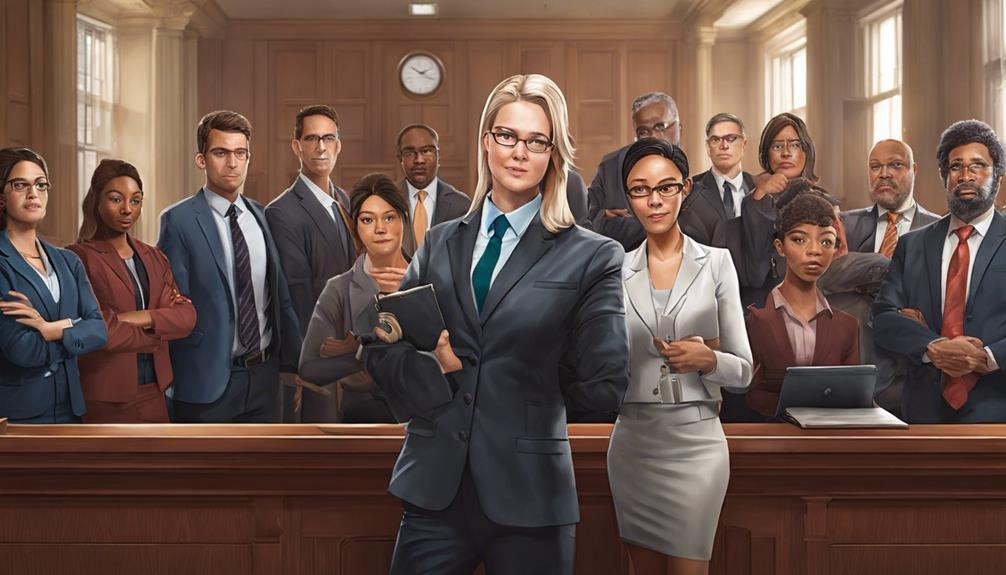
Let's stand together against discrimination, championing the protection of legal rights and ensuring unity against bias.
By collaborating with one another, advocating for necessary accommodations, and continuously pushing for inclusivity, we can make a profound impact in combating discrimination effectively.
Let's join forces to create a world where every individual, regardless of ability, is treated with respect and afforded equal opportunities.
Unity Against Bias
Uniting as a community against bias amplifies our voices and strengthens our resolve to combat discrimination together. Collaboration with deaf individuals and organizations empowers us to challenge discrimination effectively.
By standing united, we create a powerful force for change that promotes inclusivity and equal opportunities for all. Together, we can break down barriers in education, employment, healthcare, and public services. Our collective efforts not only advocate for fair treatment but also strive to eliminate systemic biases.
Let's harness the strength of our unity to create a more inclusive society where every voice is heard and every individual is valued. Join us in this movement towards a future free from discrimination.
Legal Rights Protection
Protecting legal rights for the deaf community involves advocating for equal access and combatting discrimination through various legal avenues such as the ADA, Rehabilitation Act, and IDEA. Ensuring effective communication, access to sign language interpreters, and captioning are essential in addressing discrimination in education, employment, healthcare, and public accommodations. By providing legal representation in civil rights cases, we strive to secure fair treatment and uphold the rights of the deaf community. Collaborating with deaf individuals, we fight for inclusivity, accessibility, and equality in all aspects of life. Together, we can challenge discrimination, promote understanding, and create a more just society where legal rights are respected and protected.
| Legal Rights Protection | Combatting Discrimination Together |
|---|---|
| Equal Access | Advocating for inclusivity |
| Sign Language Interpreters | Fighting discrimination together |
| Effective Communication | Ensuring accessibility |
| ADA, Rehabilitation Act, IDEA | Upholding legal rights |
Navigating Legal Systems Effectively
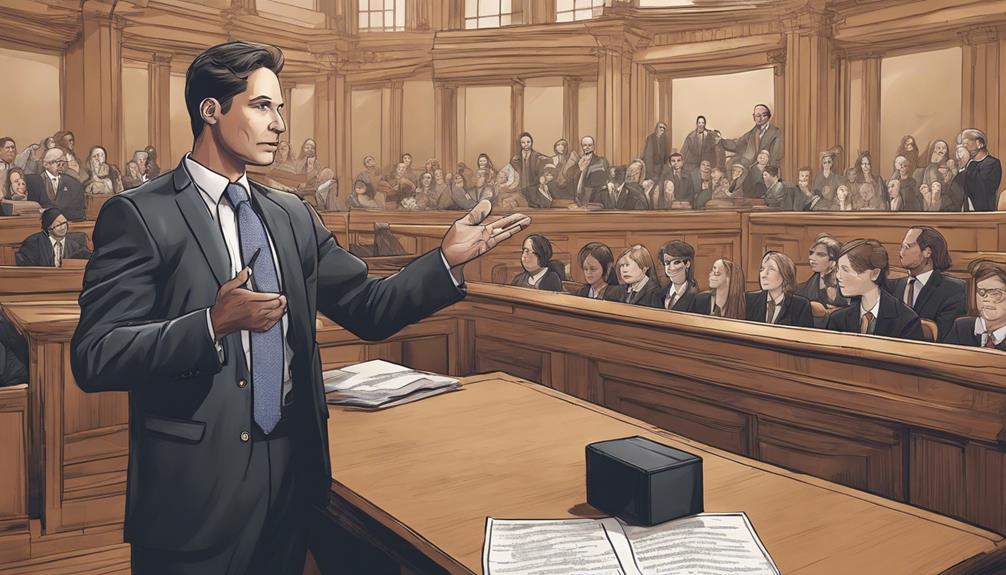
Navigating legal systems effectively is a crucial skill that empowers deaf and hard of hearing individuals to advocate for their civil rights with confidence and determination. Deaf lawyers specializing in legal representation for the deaf community play a vital role in ensuring justice and equality. Here are three key strategies they utilize to navigate legal complexities effectively:
- Specialized Expertise: Deaf lawyers bring a deep understanding of the unique challenges faced by the deaf and hard of hearing community, allowing them to provide tailored legal representation focused on civil rights issues.
- Collaborative Approach: By working closely with private attorneys on a case-by-case basis, deaf lawyers ensure that all aspects of the legal process are accessible and inclusive, leading to more effective representation for their clients.
- Establishing Legal Precedents: Through impact cases, deaf lawyers actively contribute to the establishment of legal principles that promote equality and equal access for the deaf community, paving the way for future advocacy efforts.
Empowering Deaf Voices
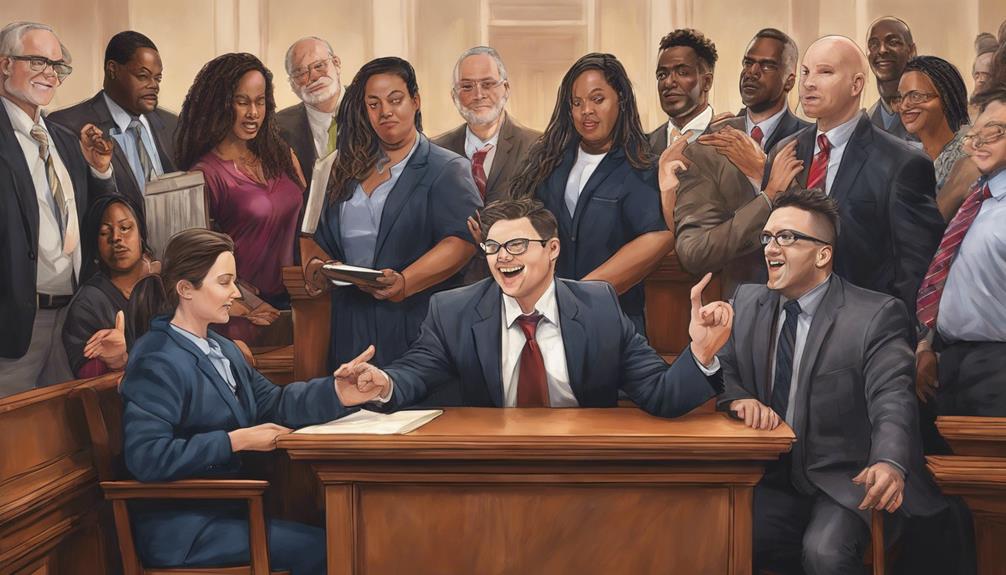
We believe in the power of amplifying deaf voices to create positive change.
Deaf lawyers serve as champions for the community, ensuring representation and accessibility in legal matters.
Deaf Community Representation
Empowering deaf voices through legal advocacy is a powerful tool in dismantling barriers and advancing the rights of the deaf community.
- Unity in Diversity: Deaf community representation fosters a sense of unity among diverse deaf individuals, highlighting their unique experiences and needs.
- Breaking Down Walls: Legal representation empowers deaf individuals to break down communication barriers and stand up against discrimination, ensuring their voices are heard and respected.
- Leading the Way: Deaf lawyers serve as trailblazers, paving the path for a more inclusive legal system that recognizes and upholds the rights and dignity of the deaf community.
Accessibility in Law
Advocating for accessibility in law is our mission, ensuring deaf voices are heard and respected in legal settings. Deaf lawyers champion legal assistance by advocating for communication strategies tailored to the Deaf or hard-of-hearing community. From sign language interpreters to visual aids, we strive to break down barriers to legal representation. Ensuring legal documents are provided in accessible formats like captions and transcripts is crucial for equal access to legal information. Online resources and video communication play a vital role in promoting understanding in legal settings for the deaf community. By focusing on enhancing accessibility, we empower deaf individuals to navigate legal matters with confidence and equality.
| Legal Assistance | Communication Strategies | Deaf or Hard-of-Hearing |
|---|---|---|
| Sign Language Interpreters | Visual Aids | Accessible Formats (captions, transcripts) |
| Online Resources | Video Communication | Equal Access to Legal Information |
Overcoming Communication Barriers
Breaking down communication barriers is crucial for empowering the voices of the deaf community in legal settings. Deaf lawyers, with their firsthand understanding of these challenges, spearhead advocacy efforts to ensure inclusivity and accessibility. Through their passionate advocacy, they pave the way for a more equitable legal system.
- Advocating for Accessible Environments: Deaf lawyers push for sign language interpreters, CART services, and other accommodations to facilitate effective communication.
- Challenging Misconceptions: By challenging stereotypes and promoting understanding, deaf lawyers work towards a more inclusive environment for the deaf community.
- Empowering Deaf Individuals: Deaf lawyers empower individuals by ensuring their voices are heard and respected in legal proceedings.
Challenging Misconceptions and Stereotypes
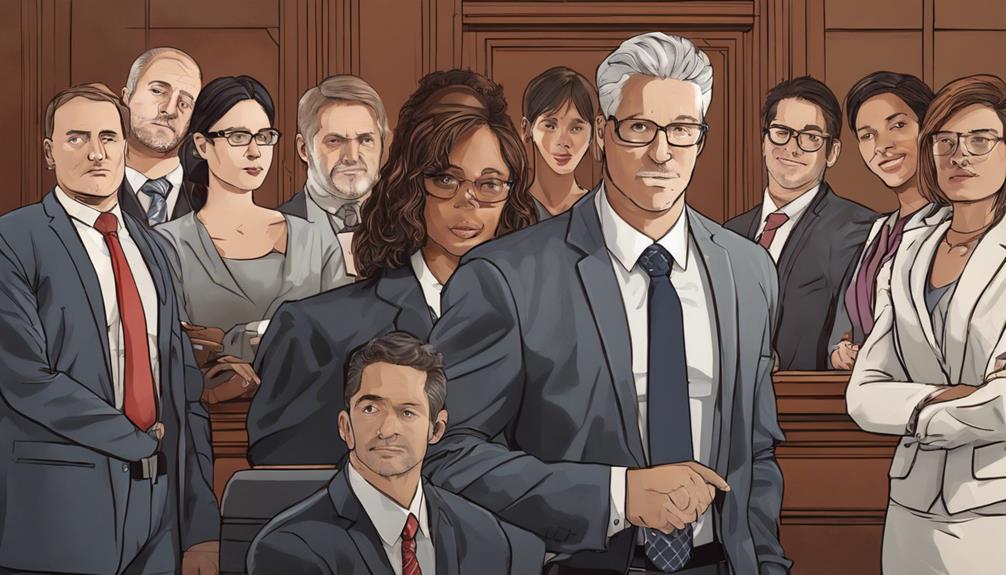
Challenging misconceptions and stereotypes, deaf lawyers eloquently demonstrate their legal prowess and advocate fiercely for equal rights. Through their dedication to legal practice and effective advocacy, they shatter stereotypes surrounding deaf individuals' capabilities.
By showcasing their competence in the legal field, deaf attorneys not only represent their clients with skill but also serve as powerful examples of overcoming communication barriers. Their relentless pursuit of justice and equal access highlights the importance of diversity in the legal profession.
Deaf lawyers play a vital role in educating others about the true potential of deaf individuals in legal advocacy, debunking myths and paving the way for a more inclusive society. By actively engaging in legal representation, they challenge assumptions about limitations in the legal system based on disability.
Their contributions not only empower the deaf community but also enrich the legal landscape with unique perspectives and insights.
Amplifying Deaf Rights
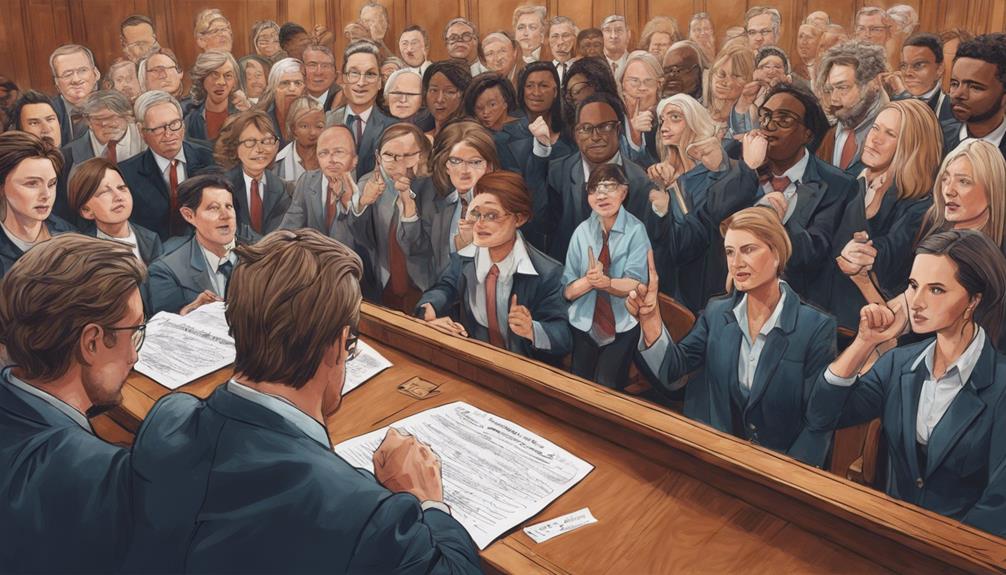
Amplifying the rights of the deaf community is a crucial mission for deaf lawyers dedicated to ensuring equal access and accommodations in the legal landscape. We strive to make a difference by advocating for the legal rights of deaf individuals, paving the way for a more inclusive society.
- Leading Impact Cases: Deaf lawyers take on landmark cases to establish legal precedents that promote equality and access for the deaf community.
- Collaborating for Change: Working hand in hand with private attorneys, we represent deaf or hard of hearing clients in discrimination cases, amplifying their voices in the legal system.
- Empowering Through Representation: Deaf lawyers extend legal support to all, regardless of income or status, ensuring that the deaf community isn't deprived of justice. Together, we secure settlements that cover legal fees, empowering deaf individuals to stand up for their rights.
Fostering Self-Empowerment
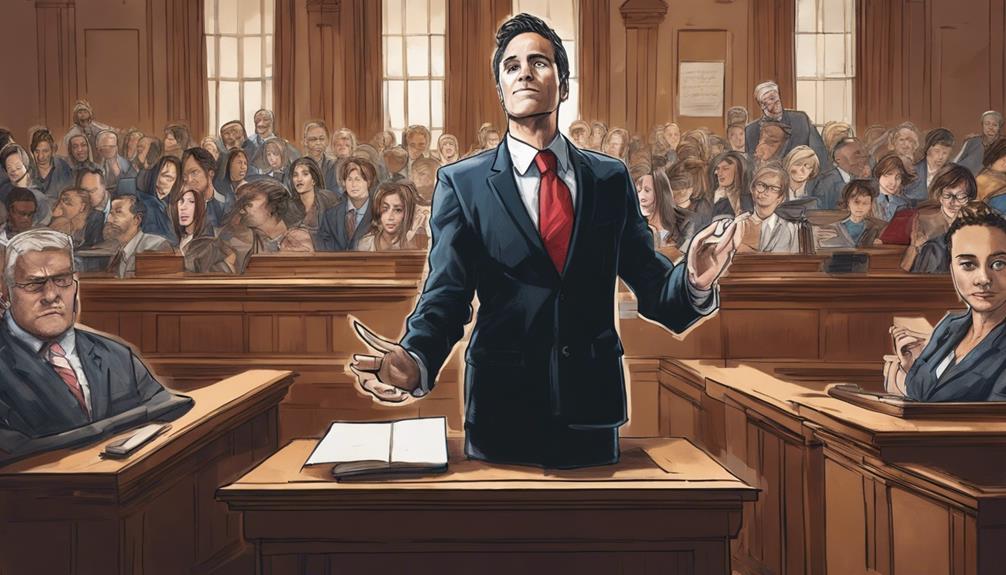
Advocating for deaf rights extends beyond legal battles; it involves fostering self-empowerment through education, support networks, and effective communication strategies. Understanding legal rights is crucial in navigating systems that often overlook the needs of the deaf community.
By building a strong support network with Deaf organizations and individuals, we can amplify our self-advocacy efforts, standing together to demand equal access and opportunities. Effective communication strategies, such as utilizing sign language interpreters and embracing assistive technologies, play a vital role in empowering deaf individuals to express themselves confidently and be fully understood.
Accessing resources, staying informed, and actively engaging in advocacy groups are essential components of self-empowerment for the deaf community. Developing self-advocacy skills early on not only promotes confidence and independence but also ensures effective communication in various settings.
Let's continue to champion for our rights, equip ourselves with knowledge, and unite in empowering one another towards a more inclusive and accessible future.
Leveraging Assistive Technologies
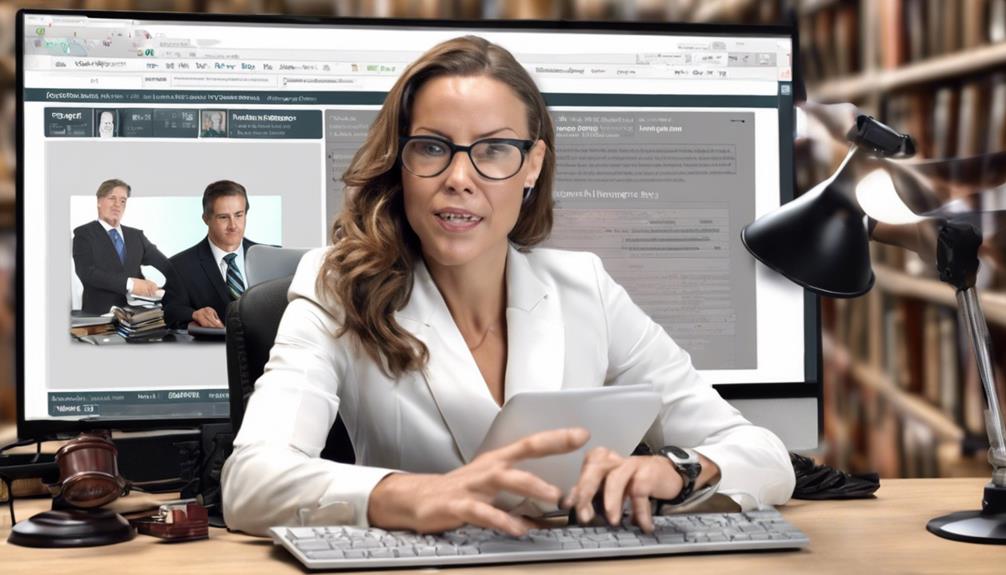
By embracing cutting-edge assistive technologies like Ava, we empower deaf individuals to access real-time captions, enhancing communication autonomy and understanding in various interactions. These advancements in communication aids revolutionize the way deaf individuals engage with the world, fostering inclusivity and breaking down communication barriers.
Here are three compelling reasons why leveraging assistive technologies is paramount for enhancing communication effectiveness for deaf individuals:
- Real-Time Accuracy: Assistive technologies like Ava provide accurate real-time captions, ensuring that deaf individuals don't miss out on any crucial information during conversations or events.
- Increased Autonomy: Accessing real-time captioning through assistive technology grants deaf individuals more independence in navigating various communication situations, empowering them to express themselves more freely.
- Enhanced Understanding: Utilizing communication aids like Ava significantly improves understanding in interactions, leading to more meaningful and effective communication exchanges that foster connections and mutual comprehension.
Embracing these innovative tools isn't just about leveraging technology; it's about empowering deaf individuals to communicate effectively and advocate for themselves in a world that's constantly evolving.
Establishing Support Networks
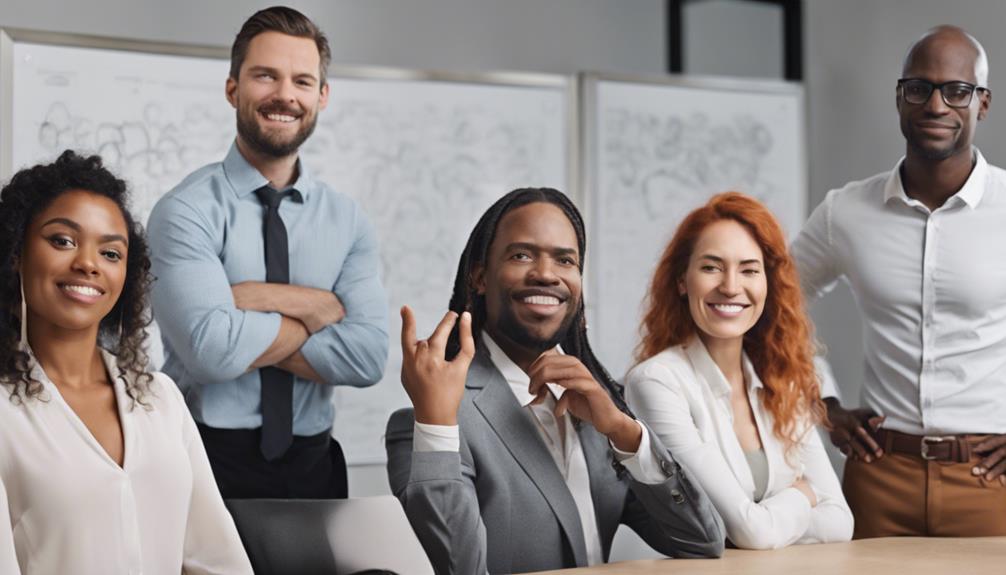
Establishing strong support networks within the deaf community is pivotal for fostering empowerment and access to essential resources. Deaf lawyers, like myself, play a vital role in these networks by providing advocacy, legal representation, and invaluable support.
Organizations such as the National Association of the Deaf (NAD) offer guidance on legal rights, discrimination issues, and effective communication strategies, enhancing our community's ability to navigate challenges and access necessary resources.
Enhancing Deaf Advocacy Skills
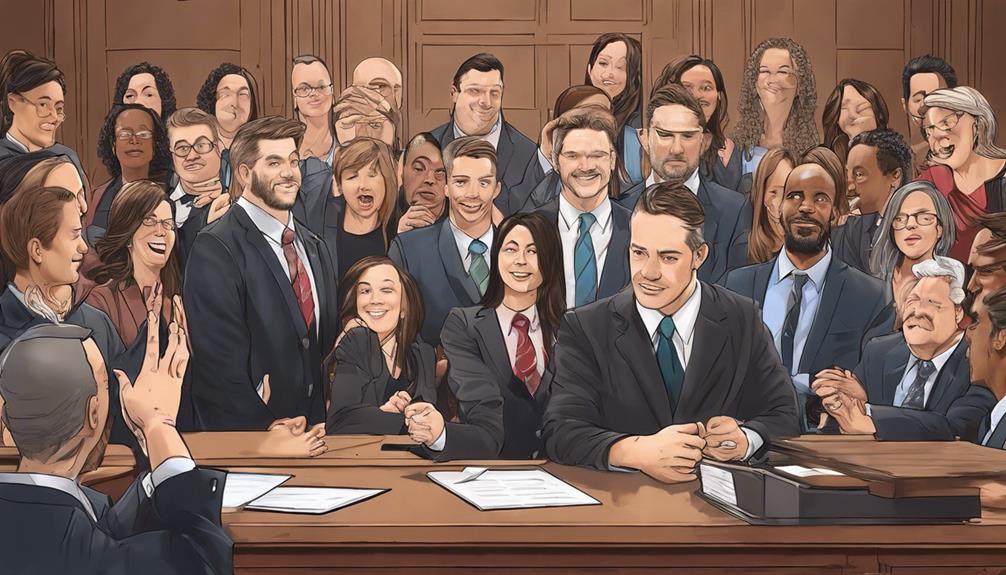
We understand the importance of honing our advocacy skills as deaf individuals.
By mastering effective communication strategies, being aware of our legal rights, and building strong support networks, we empower ourselves to create meaningful change.
Together, we can amplify our voices and champion for a more inclusive and accessible world for the deaf community.
Communication Strategies for Advocacy
Utilizing sign language interpreters, CART services, and assistive technologies enhances the effectiveness of communication in advocating for deaf rights and needs. When we harness these tools, we create a powerful platform for our voices to be heard loud and clear.
Picture this:
1) A sign language interpreter gracefully conveying our message in a legal setting, ensuring every nuance is understood.
2) CART services transforming spoken words into real-time text, bridging any communication gaps seamlessly.
3) Assistive technologies amplifying our reach, enabling us to connect with a broader audience and advocate for change on a larger scale.
Legal Rights Awareness
Enhancing our advocacy skills as deaf individuals begins with a deep understanding of our legal rights under the ADA and Rehabilitation Act. Knowing the laws that protect us is crucial for effective advocacy.
By being aware of our legal rights, we can confidently navigate various situations and demand the accommodations we deserve. This knowledge empowers us to challenge discrimination and ensure equal access in education, employment, and public services.
Legal rights awareness equips deaf individuals with the tools to advocate for ourselves and our community. With this understanding, we can stand up for our rights, seek necessary support, and strive for a more inclusive society where deaf individuals are valued and respected.
Building Strong Networks
Establishing connections with deaf organizations and individuals is paramount for honing our advocacy skills and fostering a supportive community network. By engaging with these networks, we open doors to endless possibilities for growth and empowerment. Here's how building strong networks can amplify our impact:
- Access to Mentorship: Connecting with experienced advocates within deaf organizations can provide invaluable guidance and wisdom, helping us navigate complex advocacy issues with confidence.
- Collaborative Opportunities: Networking enables us to collaborate with like-minded individuals and organizations, pooling resources and expertise to drive impactful advocacy initiatives forward.
- Collective Empowerment: Through strong networks, we can harness the collective strength of the deaf community, amplifying our voices and advocating for meaningful change together.
Let's unite, learn, and empower one another towards a brighter, more inclusive future.
Promoting Deaf Community Engagement

Promoting Deaf Community Engagement involves actively advocating for equal access and accommodations to ensure the full participation and empowerment of deaf individuals in society. Deaf lawyers play a crucial role in this advocacy, using their legal expertise to push for legislative changes that protect the rights of the deaf community. By collaborating with various organizations, they address systemic challenges faced by deaf individuals, working towards a more inclusive society.
These lawyers not only focus on securing necessary accommodations but also strive to raise awareness about deaf-related issues. Their efforts go beyond legal matters; they aim to empower deaf individuals to engage fully in their communities. Through their work, deaf lawyers foster a sense of inclusivity and belonging, promoting a society where everyone, regardless of their hearing abilities, can participate and thrive. By championing community engagement, these legal advocates pave the way for a more equitable and accessible future for the deaf community.
Leading Change in Legal Advocacy

Deaf lawyers actively champion legal change by advocating for the rights and equality of the deaf community through representation in discrimination cases and the establishment of crucial legal precedents. Here's how we lead change in legal advocacy:
- Pioneering Legal Strategies: Deaf lawyers are at the forefront of developing innovative legal strategies to address discrimination against the deaf community. By pushing boundaries and challenging existing norms, we pave the way for groundbreaking legal victories.
- Collaborating for Impact: Deaf lawyers work hand in hand with private attorneys, pooling expertise and resources to take on impact cases that have far-reaching implications for the rights of deaf individuals. Through collaboration, we amplify our advocacy efforts and drive meaningful change.
- Empowering Legal Representation: Deaf lawyers not only advocate for the deaf community but also provide crucial consultation to other legal professionals representing deaf or hard of hearing clients. By sharing insights and best practices, we ensure effective legal representation and empower others to champion the cause of equal rights and access.
Frequently Asked Questions
How Do I Advocate for Deaf People?
Advocating for deaf individuals involves understanding legal rights, clear communication, and building strong networks.
We ensure needed accommodations like sign language interpreters and stay informed on Deaf-related news and legislation.
Specific requests for CART services or captions are crucial for effective communication access.
By being proactive, empathetic, and informed, we empower deaf advocacy efforts and create a more inclusive society.
Let's work together to amplify the voices of the Deaf community and drive positive change.
How Do I Advocate for Myself for Hearing Loss?
Advocating for ourselves with hearing loss is crucial. We must clearly express our needs for accommodations, such as interpreters or captioning, to ensure effective communication.
Building a strong support network with Deaf organizations can amplify our advocacy efforts. Staying informed on Deaf-related news and resources is vital for enhancing our self-advocacy skills.
Documenting challenges, escalating requests, and seeking legal help when needed are essential steps to ensure our rights are met.
What Are the Goals of Self-Advocacy for Deaf and Hard of Hearing?
Our goals in self-advocacy for the deaf and hard of hearing are to raise awareness of legal rights, secure necessary accommodations, and foster confidence in navigating diverse environments.
By educating ourselves on laws like the ADA and forging connections with supportive networks, we aim to promote inclusivity and equal opportunities.
Through these efforts, we strive to enhance self-awareness, communication skills, and overall well-being, empowering ourselves and others in our community.
What Is an Example of Self-Advocacy?
Sure!
An example of self-advocacy is when we, as a deaf community, stand up for our rights by requesting accommodations like sign language interpreters or captioning. By educating others about our needs and legal rights, we empower ourselves to navigate challenges and access resources.
Through effective self-advocacy, we promote inclusivity and ensure our full participation in various aspects of life. It's about being proactive, assertive, and making our voices heard.
Conclusion
In conclusion, as deaf lawyers, we have the power to empower our community to overcome challenges and fight for their rights.
For example, by advocating for better access to sign language interpreters in courtrooms, we can ensure fair representation for deaf individuals.
Let's continue to lead the way in promoting inclusivity, breaking down barriers, and creating a more just society for all.
Together, we can make a difference.
Jamie is one of the creative forces behind the words that resonate with our audience at Deaf Vibes. With a passion for storytelling and advocacy, Jamie delves into topics that matter deeply to the deaf and hard-of-hearing community. Jamie’s articles are crafted with empathy, insight, and a commitment to positive change, from exploring the latest advancements in hearing technologies to shedding light on the everyday challenges and victories of those within the community. Jamie believes in the power of shared stories to inspire action, foster understanding, and create a more inclusive world for everyone.
Living with Hearing Loss
Top Churches With Deaf Interpreters Near Me
Mingle with the Deaf community at the top churches with interpreters nearby, where faith and inclusivity intersect in remarkable ways.

As we explore churches in our community, it's fascinating to note that over 25% of Deaf individuals in the United States identify as Christian. When searching for places of worship with Deaf interpreters nearby, it's crucial to find a welcoming and accessible environment for all.
These churches offer not just a service but a sense of community and inclusion. Let's uncover the top churches with Deaf interpreters near us and discover the unique experiences they provide for worshippers seeking a meaningful connection to their faith.
Key Takeaways
- Churches provide ASL interpreters for all services.
- Emphasis on Deaf culture and linguistic inclusivity.
- Creative worship services with ASL poetry and arts.
- Community engagement and support programs for Deaf individuals.
Houston Deaf Community Church
In Houston, Texas, the Houston Deaf Community Church warmly welcomes all deaf individuals seeking a place to worship and connect. Our church recognizes the importance of creating an inclusive environment where deaf individuals can feel a sense of belonging and community. With interpreted services tailored to meet the needs of the deaf community, we strive to ensure effective communication and participation for all members.
At Houston Deaf Community Church, we believe in the power of spreading the teachings of Jesus Christ without any language barriers. Our ASL interpreters play a crucial role in breaking down these barriers, allowing individuals to engage fully in our worship services and activities. Whether you're young or old, from any background, we encourage you to join our community for spiritual growth and fellowship.
Join us at Houston Deaf Community Church, where we embrace diversity and celebrate the unique contributions of each individual. Together, let's worship, connect, and grow in faith as one community.
Grace Deaf Fellowship
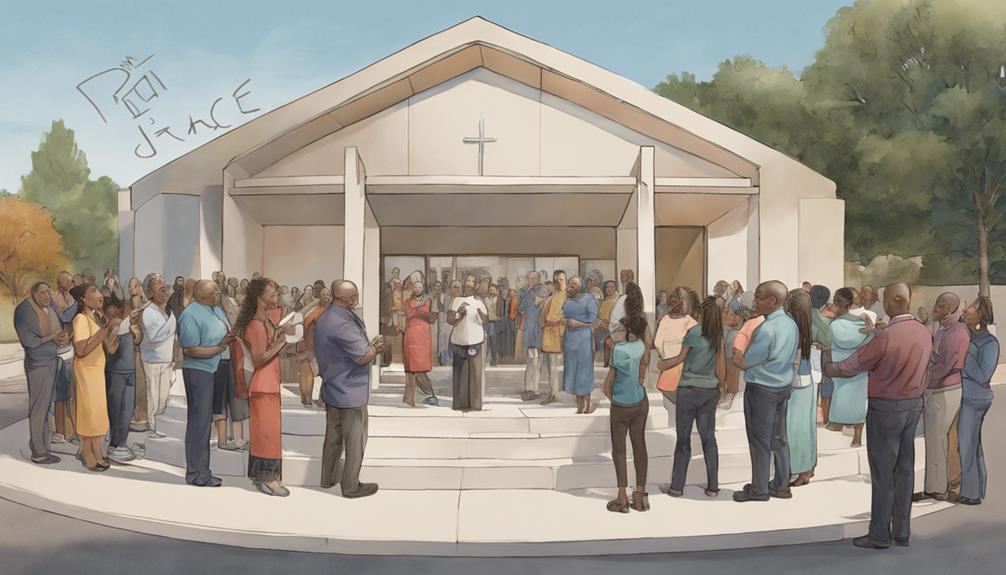
Welcoming all members of the Deaf community, Grace Deaf Fellowship in Houston, Texas, offers a vibrant church experience tailored to meet their unique needs and preferences. At Grace Deaf Fellowship, the Deaf ministry plays a central role in fostering a sense of community, faith, and support among Deaf individuals. Through interpreted services and events in American Sign Language (ASL), the church ensures that Deaf members have access to spiritual teachings and resources in a way that resonates with them.
Here is a snapshot of what Grace Deaf Fellowship offers through its Deaf ministry:
| Deaf Ministry at Grace Deaf Fellowship | Features |
|---|---|
| Interpreted Services | Tailored to Deaf community's needs |
| Inclusive Environment | Welcoming and supportive atmosphere |
| ASL Spiritual Resources | Accessible teachings and resources |
Grace Deaf Fellowship stands out for its commitment to providing a space where Deaf individuals can worship, connect, and grow spiritually within a community that understands and meets their unique requirements.
Silent Hands Ministry
Silent Hands Ministry in Houston, Texas, passionately facilitates sign language interpretation services to foster accessibility and inclusivity for the Deaf community during church events and activities.
This Baptist-affiliated organization collaborates with churches to ensure that Deaf individuals can participate fully in worship services.
The skilled interpreters at Silent Hands Ministry are proficient in American Sign Language (ASL), bridging the communication gap and creating a Deaf-friendly environment for religious gatherings.
Hands of Praise Church

At Hands of Praise Church, interpreter availability is a key focus, ensuring seamless communication accessibility for all members of the deaf community.
Their commitment to providing sign language interpreted services creates an inclusive environment where everyone can participate fully.
Hands of Praise Church stands out for their dedication to fostering spiritual growth and fellowship through tailored ASL worship experiences.
Interpreter Availability
Ensuring accessibility for the Deaf community, Hands of Praise Church provides ASL interpreters for all Sunday services and special events, offering a welcoming environment for all worshippers. Interpreted services are also available during midweek gatherings, ensuring that Deaf individuals can fully participate in the church's activities.
The ASL interpreters at Hands of Praise Church aren't only highly skilled but also trained to ensure clear communication, making the worship experience inclusive for everyone. In addition to interpreter services, Hands of Praise Church goes a step further by offering Deaf ministry resources and support, showing a commitment to meeting the spiritual needs of the Deaf community.
This dedication to accessibility and inclusion creates a warm and inviting space for all worshippers.
Communication Accessibility
With a strong commitment to accessibility and inclusivity, Hands of Praise Church in Houston ensures that all church services are equipped with sign language interpretation for the Deaf community. At Hands of Praise Church, communication accessibility is a top priority, making sure that Deaf individuals can actively engage in all spiritual activities. Deaf interpreters play a crucial role in facilitating seamless communication during worship services, enhancing the overall experience for attendees. The Baptist Church provides a welcoming environment where everyone, including the Deaf community, can feel included and valued. Below is a table highlighting the dedication of Hands of Praise Church towards communication accessibility:
| Aspect | Description |
|---|---|
| Sign Language Interpreters | Available for all church services |
| Inclusivity | Ensuring Deaf individuals can fully participate in spiritual activities |
| Worship Experience | Enhanced for all attendees through the presence of Deaf interpreters |
Sign of Hope Church
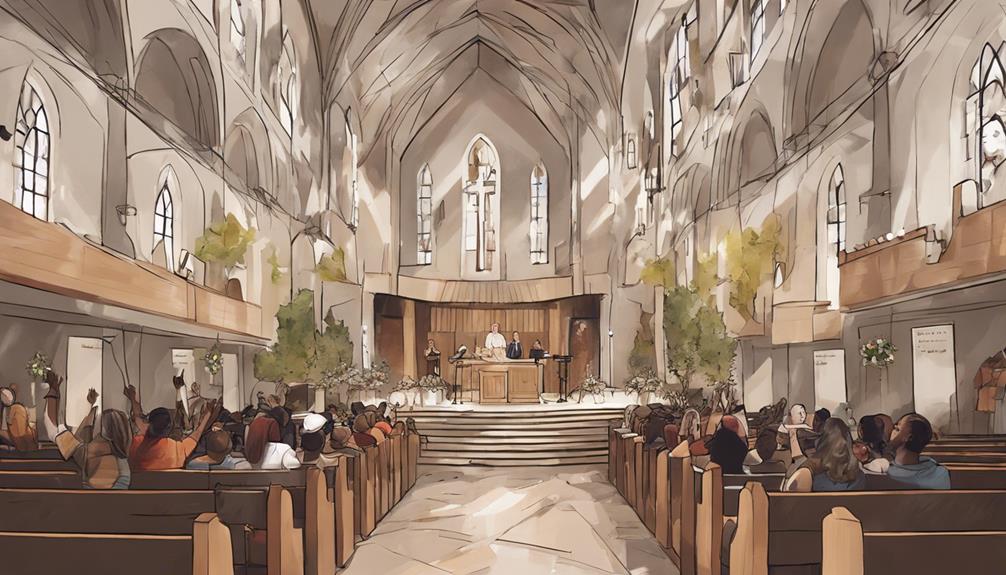
At Sign of Hope Church, Deaf individuals can find interpreter services readily available during worship services. The church's weekly service schedule ensures that the Deaf community can actively engage in spiritual practices every Sunday.
Sign of Hope Church's commitment to community engagement fosters a welcoming environment for all attendees.
Interpreter Availability
Sign of Hope Church offers interpreted services with certified and experienced ASL interpreters every Sunday at 9:00am and 11:00am, providing a personalized and inclusive worship experience for Deaf individuals.
Our interpreters are skilled in interpreting for the Deaf and are dedicated to ensuring clear communication during our services. Deaf worshippers can even request specific interpreters to further tailor their experience.
We value accessibility and strive to create a welcoming environment where everyone can fully participate in our community. At Sign of Hope Church, we're committed to making sure that all attendees, including those who are Deaf, feel included and engaged in our services through the support of our knowledgeable interpreters.
Service Schedule
We understand the importance of knowing the service schedule at Sign of Hope Church for your convenience and participation in our interpreted services for the deaf community. In Houston, Texas, you can join us for interpreted services on Sundays at 9:00am and 11:00am.
Our commitment to accessibility means that deaf attendees in the United States can engage fully in the worship experience through American Sign Language interpretation of sermons, prayers, and music. By offering these services, we aim to create an inclusive space where everyone can worship together regardless of hearing abilities.
Join us at Sign of Hope Church to be a part of a community that values diversity and embraces innovation in making religious services accessible to all.
Community Engagement
Engaging actively with the Deaf community in Houston, Texas, involves fostering a culture of inclusivity and belonging at Sign of Hope Church. We prioritize creating a Deaf-friendly environment where everyone feels welcomed and valued.
Our commitment to providing sign language interpretation during all services and events ensures that communication is accessible to all. Sign of Hope Church goes beyond just interpretation by offering Deaf-friendly programs and activities designed to actively engage the community.
Deaf Life Church
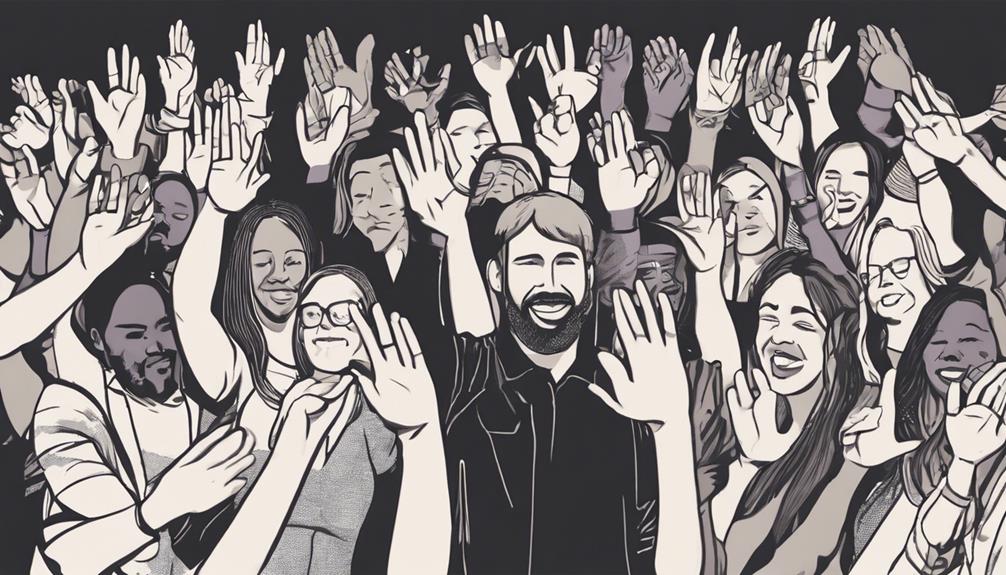
At Deaf Life Church, our Sunday services at 10:00am are ASL-interpreted to create a welcoming space for Deaf individuals and their families. We understand the importance of accessibility and inclusion, which is why we strive to provide a supportive community where everyone can feel connected and valued. Deaf Life Church not only focuses on spiritual growth but also celebrates Deaf culture and sign language.
Our interpreters are highly skilled and experienced in serving the Deaf community, ensuring that our services are easily understandable and engaging for all attendees. Beyond our weekly services, we organize social events, Bible studies, and outreach programs specifically tailored to meet the needs and interests of our Deaf members. These initiatives aim to foster a sense of belonging and strengthen the bonds within our community.
Join us at Deaf Life Church as we embrace diversity, promote inclusivity, and journey together in faith and fellowship.
Hands in Harmony Fellowship
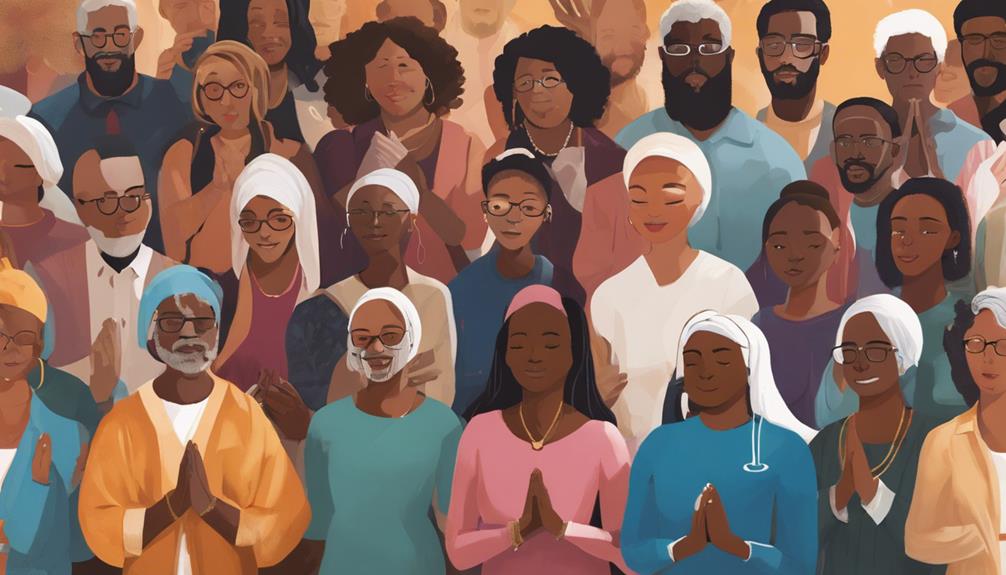
At Hands in Harmony Fellowship, we understand the importance of access and inclusion for the Deaf community. Our Interpreter Availability Schedule ensures that all services are accessible through ASL interpretation.
Through Sign Language Sermons and active Deaf Community Involvement, we strive to create a welcoming and spiritually enriching environment for all.
Interpreter Availability Schedule
Ensuring access for the Deaf community, Hands in Harmony Fellowship provides interpreter availability during their Sunday service at 10:30am and Wednesday service at 7:00pm.
| Day | Time |
|---|---|
| Sunday | 10:30am |
| Wednesday | 7:00pm |
Having interpreters available for all worship services fosters an inclusive environment where Deaf individuals can comfortably participate. At Hands in Harmony Fellowship, the interpreter availability schedule is carefully planned to guarantee accessibility for the Deaf community. This commitment ensures that everyone can engage fully in the spiritual experience without barriers. By offering interpreted services at these specific times, we aim to create a welcoming space where all individuals, regardless of hearing abilities, can come together to worship and connect.
Sign Language Sermons
Hands in Harmony Fellowship offers sign language sermons specifically tailored for the Deaf community in Houston. Deaf interpreters at our fellowship play a crucial role in ensuring that our sermons are inclusive and accessible to all. Here's why our sign language sermons stand out:
- Conducted in American Sign Language (ASL) for maximum accessibility.
- Spiritual guidance and support provided through sign language.
- Deaf interpreters facilitating a meaningful worship experience.
- Incorporation of Deaf culture and values for resonance within the community.
At Hands in Harmony Fellowship, we're dedicated to creating a welcoming environment where Deaf individuals can fully engage in their faith journey through sign language sermons.
Deaf Community Involvement
Involving the Deaf community in various church activities and leadership roles is a central aspect of our ministry at Hands in Harmony Fellowship in Houston. We believe in empowering Deaf individuals to take on pivotal roles within our community, fostering a sense of belonging and ownership. By providing opportunities for Deaf members to share their faith through sign language, ASL poetry, and visual arts during worship services, we create a vibrant and inclusive environment where everyone can thrive spiritually and socially. This commitment to Deaf community involvement not only enriches our worship experience but also strengthens the bond among all members. Below is a snapshot of how Deaf individuals contribute to our fellowship:
| Involvement | Description |
|---|---|
| Planning and Organizing | Deaf individuals actively participate in event planning and organization. |
| Worship Expression | Opportunities for Deaf members to express their faith through various mediums. |
| Leadership Roles | Deaf leaders take on key positions within the fellowship, shaping its direction. |
Echoes of Faith Church

At Echoes of Faith Church in Houston, Texas, deaf individuals can fully engage in worship and activities through interpreted services. The church goes above and beyond to ensure that everyone can participate in spiritual practices regardless of hearing ability. Here's why Echoes of Faith Church stands out for the deaf community:
- Interpreted Services: Deaf interpreters are present during all services, enabling seamless communication for deaf worshipers.
- Inclusive Environment: Echoes of Faith Church fosters a welcoming atmosphere where deaf individuals feel valued and embraced.
- Effective Communication: Deaf interpreters at the church facilitate clear understanding and engagement during various events and gatherings.
- Accessibility Focus: The church's commitment to accessibility demonstrates a dedication to providing spiritual fulfillment for all, regardless of hearing capabilities.
Echoes of Faith Church stands as a beacon of inclusivity and understanding, ensuring that deaf individuals can connect deeply with their faith in a supportive community.
Hands of Grace Community
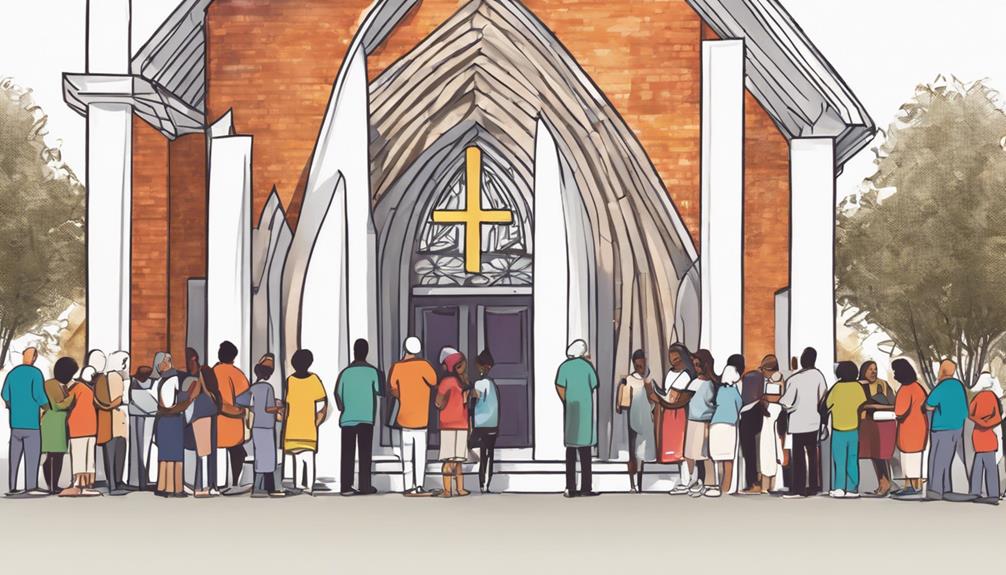
Echoes of Faith Church in Houston, Texas, highlights the importance of deaf accessibility in religious settings, and this commitment transitions seamlessly to the discussion of Hands of Grace Community. Hands of Grace Community is a Deaf church located in Houston, Texas, dedicated to providing a welcoming and inclusive space for the Deaf community. The church offers interpreted services and events tailored to meet the spiritual needs of Deaf worshipers. At Hands of Grace Community, Deaf culture and identity are actively promoted, fostering a sense of belonging and connection among attendees. The church's focus on creating a supportive environment for Deaf individuals sets it apart as a beacon of inclusivity and understanding.
| Aspect | Details |
|---|---|
| Location | Houston, Texas |
| Services Provided | Interpreted services and events for the Deaf community |
| Focus | Welcoming and inclusive environment for Deaf individuals |
| Special Emphasis | Promotion of Deaf culture and identity within services |
Unity in Signing Church

Unity in Signing Church, located in Houston, Texas, is renowned for its commitment to providing inclusive and accessible worship services for the Deaf community. Our church embraces Deaf culture and language, fostering a sense of belonging and understanding among worshipers.
Here are key highlights of what makes Unity in Signing Church a unique Deaf Church experience:
- Sign Language Interpretation: All services at Unity in Signing Church offer sign language interpretation, ensuring that Deaf individuals can fully participate and engage in worship.
- Supportive Environment: The church focuses on creating a supportive environment where Deaf individuals can connect, worship, and spiritually grow in a community that values their unique identity.
- Cultural and Linguistic Inclusivity: Deaf individuals express their faith through sign language, emphasizing the importance of cultural and linguistic inclusivity within the church.
- Creative Worship Services: Unity in Signing Church offers diverse and creative worship services that incorporate ASL poetry, dancing, and even Deaf rap, enhancing the spiritual experience for all attendees.
Frequently Asked Questions
Where Do Deaf People Go to Church?
We go to churches where we feel welcomed and included. Accessible services with interpreters help us fully engage in worship and connect with our community. Attending these churches enhances our spiritual experience and sense of belonging. It's vital to prioritize communication accessibility for all members.
Deaf-friendly churches provide us with the support we need to participate in religious teachings and fellowship. Our spiritual journey is enriched by these inclusive spaces.
What Percentage of Deaf People Attend Church?
We understand the importance of knowing the percentage of deaf people attending church. While specific data may vary, studies suggest around 2% of deaf individuals in America worship regularly.
In Texas, where severe hearing loss affects 3.5% of the population, efforts by groups like the Texas Baptist Conference of the Deaf serve about 5,000 worshipers.
Challenges like communication barriers persist, but dedicated individuals and ministries strive to make church accessible to all.
What Is a Deaf Ministry?
Deaf ministries are specialized religious services meeting the spiritual and community needs of Deaf individuals. These ministries offer sign language interpretation, visual aids, and tailored activities for Deaf attendees. They play a vital role in fostering belonging, spiritual growth, and fellowship within the church community.
Conclusion
As we journey through life, may we find solace in the hands that guide us towards unity and understanding.
Just as interpreters bridge the gap between languages, let's be bridges of compassion and connection in our communities.
Together, we can create a harmonious symphony of diversity, where every voice is heard and every soul is valued.
Let's continue to strive for inclusivity and acceptance, embracing the beauty of our differences as we walk hand in hand towards a brighter future.
Jamie is one of the creative forces behind the words that resonate with our audience at Deaf Vibes. With a passion for storytelling and advocacy, Jamie delves into topics that matter deeply to the deaf and hard-of-hearing community. Jamie’s articles are crafted with empathy, insight, and a commitment to positive change, from exploring the latest advancements in hearing technologies to shedding light on the everyday challenges and victories of those within the community. Jamie believes in the power of shared stories to inspire action, foster understanding, and create a more inclusive world for everyone.
Living with Hearing Loss
Batteries That Cannot Be Recycled: A How-To Guide
Uncover the secrets of handling unrecyclable batteries – discover innovative solutions for a more sustainable future.

As we navigate the landscape of battery disposal, we often encounter roadblocks in the form of batteries that seem to be the dead ends of recycling. How can we responsibly handle these unrecyclable powerhouses of our devices?
Let's shed light on strategies and insights that could offer a pathway towards a more sustainable approach to dealing with batteries that pose challenges in the recycling realm.
Key Takeaways
- Proper handling and disposal prevent environmental harm.
- Store and transport unrecyclable batteries safely.
- Adhere to local regulations for proper disposal.
- Repurpose non-recyclable batteries for low-drain devices.
Common Non-Recyclable Battery Types
When it comes to common non-recyclable battery types, identifying damaged or leaking batteries is crucial due to the safety risks they pose. Non-recyclable batteries can include those with mixed chemistries, like combining lithium and alkaline batteries, which can't be recycled together. These mixed chemistry batteries not only complicate the recycling process but can also lead to safety hazards if they leak or malfunction.
Moreover, it's essential to be cautious with non-standard batteries, such as homemade or modified batteries, as these aren't accepted for recycling due to safety concerns and the unknown chemistry involved. When handling electronic devices that contain batteries, it's important to recycle them separately from the batteries to prevent any potential risks.
Environmental Impact of Unrecycled Batteries

Unrecycled batteries pose a significant threat to the environment by contaminating groundwater and ecosystems with toxic chemicals such as mercury, lead, cadmium, and nickel. Improper disposal of batteries can lead to hazardous waste seeping into the ground and water sources, causing long-lasting damage to the ecosystem. The environmental impact of unrecycled batteries goes beyond contamination and extends to the risk of fires and explosions due to the reactive materials present in these batteries.
3 Key Points:
- Proper Disposal Methods: Ensuring batteries are disposed of correctly is crucial to prevent the release of toxic substances that can harm the environment.
- Recycling Initiatives: Recycling batteries reduces the amount of hazardous waste that ends up in landfills, contributing to a cleaner environment.
- Preventing Groundwater Contamination: By recycling batteries, we can significantly reduce the risk of groundwater contamination, protecting both human health and ecosystems.
Proper Storage of Unrecyclable Batteries
To ensure the safe storage of unrecyclable batteries, it is essential to follow proper guidelines such as storing them in a cool, dry place away from direct sunlight. Keeping unrecyclable batteries in their original packaging or separate compartments can prevent short-circuiting. Placing these batteries in a plastic container will help contain any leaks or spills. It's crucial to avoid mixing different types of unrecyclable batteries to prevent potential chemical reactions. Lastly, labeling the storage container clearly as 'Used Batteries – Do Not Recycle' is important for safety and proper disposal.
| Storage Guidelines for Unrecyclable Batteries |
|---|
| Store in a cool, dry place away from sunlight |
| Keep in original packaging or separate compartments to prevent short-circuiting |
| Place in a plastic container to contain leaks |
| Avoid mixing different types to prevent chemical reactions |
| Label container as 'Used Batteries – Do Not Recycle' |
Local Regulations on Battery Disposal
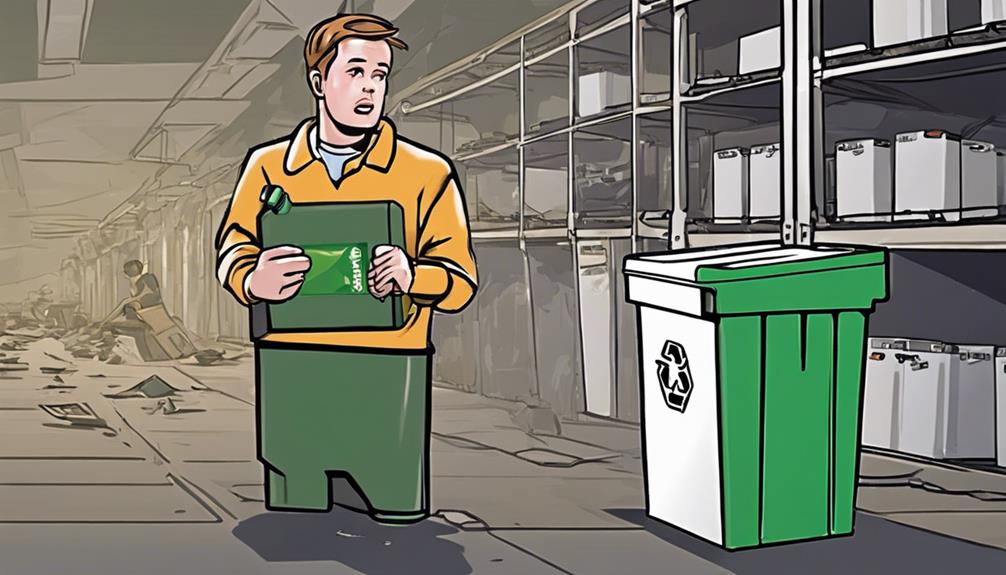
Local regulations on battery disposal can significantly impact how individuals must handle and discard their used batteries. It's crucial to understand the battery disposal regulations in your locality to avoid improper battery disposal and prevent environmental harm. Here are some key points to consider:
- Variation in Regulations: Local guidelines on battery disposal vary by state and city. Some areas may have specific rules for disposing of different types of batteries, such as alkaline, lithium-ion, or lead-acid batteries.
- Restrictions on Disposal Methods: Certain locations may prohibit throwing batteries in the trash due to environmental concerns. To comply with these regulations, individuals may need to use designated drop-off locations or recycling centers for their used batteries.
- Consult Local Authorities: It's essential to check with local waste management authorities to understand the specific guidelines on battery disposal in your area. By following these regulations, you can contribute to the proper management of battery waste and protect the environment.
Safe Handling and Transport Guidelines
When dealing with batteries that can't be recycled, it's crucial to prioritize safety measures such as wearing gloves to shield against corrosive materials.
Securely transporting these batteries in a non-conductive container is essential to prevent leaks or short-circuiting.
Additionally, storing non-recyclable batteries away from heat sources and flammable items is vital to minimize fire risks.
Handling Safety Measures
Regularly wearing gloves when handling non-recyclable batteries is crucial to prevent direct exposure to toxic chemicals. To ensure safe handling of these batteries, follow these safety measures:
- Use a Non-Conductive Container: Place non-recyclable batteries in a non-conductive, secure container to prevent any accidental discharge or short-circuiting during transport.
- Avoid Mixing: It's important not to mix non-recyclable batteries with recyclable ones to avoid contamination and potential hazards.
- Proper Storage: Store non-recyclable batteries in a cool, dry place away from flammable materials to reduce the risk of fire or other safety incidents.
Proper Transportation Methods
To ensure the safe handling and transport of non-recyclable batteries, it's essential to follow proper guidelines and precautions to minimize potential risks and hazards.
Always transport batteries in secure containers or their original packaging to prevent short-circuiting or leaks. When dealing with damaged batteries, use caution to avoid skin contact or inhaling harmful chemicals.
Secure batteries during transport to prevent movement or damage that could lead to safety hazards. It's crucial to keep batteries away from heat sources and flammable materials to reduce the risk of fire or explosion while in transit.
Different types of batteries, like lithium-ion or lead-acid, may have specific transportation guidelines that need to be followed for safe handling and compliance with regulations.
Storage Precautions to Take
For the safe storage and transport of non-recyclable batteries, it's crucial to segregate them from recyclable batteries to prevent potential contamination risks.
Here are three essential precautions to take when handling non-recyclable batteries:
- Store Separately: Keep non-recyclable batteries in a designated area away from recyclable ones to avoid any cross-contamination.
- Cool and Dry Storage: Store non-recyclable batteries in a cool, dry place, shielded from direct sunlight to maintain their integrity.
- Secure Transport: When moving non-recyclable batteries, use their original packaging or a secure container to prevent damage and potential leakage during transportation.
Following these storage precautions won't only ensure the safety of handling non-recyclable batteries but also help in minimizing environmental risks associated with their disposal.
Alternative Uses for Non-Recyclable Batteries

Consider repurposing non-recyclable batteries for low-drain devices to prolong their functionality and minimize waste. Instead of tossing them out immediately, give these batteries a second life by using them in gadgets that do not require high power output. Here are some practical ways to upcycle non-recyclable batteries:
| Device | Examples |
|---|---|
| Remote Controls | TV remotes, air conditioner remotes |
| Wall Clocks | Analog or digital clocks |
| LED Candles & Decorative Lights | Mood lighting, holiday decorations |
| Children's Toys | Small toys, toy cars, dolls |
| Emergency Flashlights | Power outage lights, camping lanterns |
| DIY Projects | Small robotics, crafts, educational kits |
Disposal Options for Non-Recyclable Batteries

Repurposing non-recyclable batteries for low-drain devices can extend their functionality and reduce waste, but when these batteries reach the end of their usable life, it's crucial to consider proper disposal options to prevent environmental harm.
Here are some disposal options for non-recyclable batteries based on local regulations:
- Trash Disposal: In many areas, non-recyclable batteries such as non-rechargeable alkaline batteries can be safely disposed of in the regular trash. Following local guidelines for trash disposal ensures that these batteries are handled properly.
- Special Collection Programs: Some localities offer special collection programs for non-recyclable batteries. These programs may provide designated drop-off locations or collection events where you can safely dispose of these batteries.
- Hazardous Waste Facilities: Non-recyclable batteries can sometimes be disposed of at hazardous waste facilities. These facilities are equipped to handle various types of hazardous materials, ensuring proper disposal according to regulations.
It's crucial not to mix non-recyclable batteries with recyclable ones during disposal to prevent contamination and environmental harm. Remember to seal the batteries properly before disposal to avoid leaks or damage.
Future Innovations in Battery Recycling

Innovative advancements in battery recycling are revolutionizing the way we handle and recover valuable materials from used batteries. Advanced sorting technologies are being developed to efficiently separate different battery types, leading to increased recycling rates. These advancements aim to recover essential materials such as cobalt and lithium, reducing the reliance on mining for these resources. Research in battery recycling is also focused on creating more sustainable processes to manage the growing volume of used batteries effectively. By exploring improved methods for dismantling and processing batteries, we can minimize the environmental impact of their disposal. Collaboration between industry, government, and research institutions plays a crucial role in driving these advancements in battery recycling technology.
| Benefits of Future Battery Recycling Innovations |
|---|
| Efficient sorting of battery types |
| Increased recycling rates |
| Recovery of valuable materials like cobalt and lithium |
| Sustainable processes for handling used batteries |
| Reduced environmental impact of battery disposal |
Frequently Asked Questions
What Batteries Cannot Be Recycled?
Sure thing!
Some batteries that can't be recycled include lithium-ion batteries, lead-acid batteries, and non-rechargeable alkaline batteries like AA, AAA, and 9-volt batteries. It's crucial to dispose of these batteries properly to avoid environmental harm.
When dealing with mixed or damaged batteries, caution is advised. Check with local recycling facilities or hazardous waste disposal sites for guidance on how to handle batteries that can't be recycled.
Can All Types of Batteries Be Recycled and How?
Yes, not all types of batteries can be recycled. Understanding which ones can't be recycled is crucial for proper disposal.
Lithium-ion batteries, for instance, pose challenges due to safety concerns and the need for specialized facilities.
Button-cell batteries contain toxic materials like mercury and must be recycled correctly.
Lead-acid batteries used in vehicles require specific processes for recovering valuable materials.
Knowing these distinctions helps in making informed decisions to protect the environment.
What Can You Do With a Broken Lithium-Ion Battery?
When facing a broken lithium-ion battery, it's imperative to act cautiously. Never attempt DIY repairs due to the risks of fire or explosion. Instead, contact professionals at a recycling center or hazardous waste disposal facility for safe handling.
Avoid exposing the damaged battery to extreme conditions like heat. Proper disposal is crucial to prevent environmental harm and ensure safety. Let's prioritize responsible actions to mitigate potential hazards effectively.
How Do You Dispose of Bulging Lithium Batteries?
When disposing of bulging lithium batteries, it's crucial to handle them with care due to potential safety risks. Avoid puncturing or tampering with them to prevent fires or explosions.
Store these batteries in a cool, dry place away from flammable materials.
Always seek professional help for safe disposal, reaching out to local waste management or specialized recycling facilities for guidance. Bulging lithium batteries may indicate internal damage, necessitating expert handling to ensure safety.
Conclusion
In conclusion, it's crucial for us to properly dispose of batteries that can't be recycled to protect our environment.
Did you know that approximately 3 billion batteries are thrown away each year in the United States alone?
By following the guidelines in this guide, we can all play a part in reducing the environmental impact of unrecycled batteries and work towards a more sustainable future.
Let's do our part and make a difference!
Jamie is one of the creative forces behind the words that resonate with our audience at Deaf Vibes. With a passion for storytelling and advocacy, Jamie delves into topics that matter deeply to the deaf and hard-of-hearing community. Jamie’s articles are crafted with empathy, insight, and a commitment to positive change, from exploring the latest advancements in hearing technologies to shedding light on the everyday challenges and victories of those within the community. Jamie believes in the power of shared stories to inspire action, foster understanding, and create a more inclusive world for everyone.
Living with Hearing Loss
Top Deaf Meetups Near Me You Can't Miss
Uncover the vibrant world of Deaf culture and connections at top meetups near you, where every gesture tells a story worth exploring.
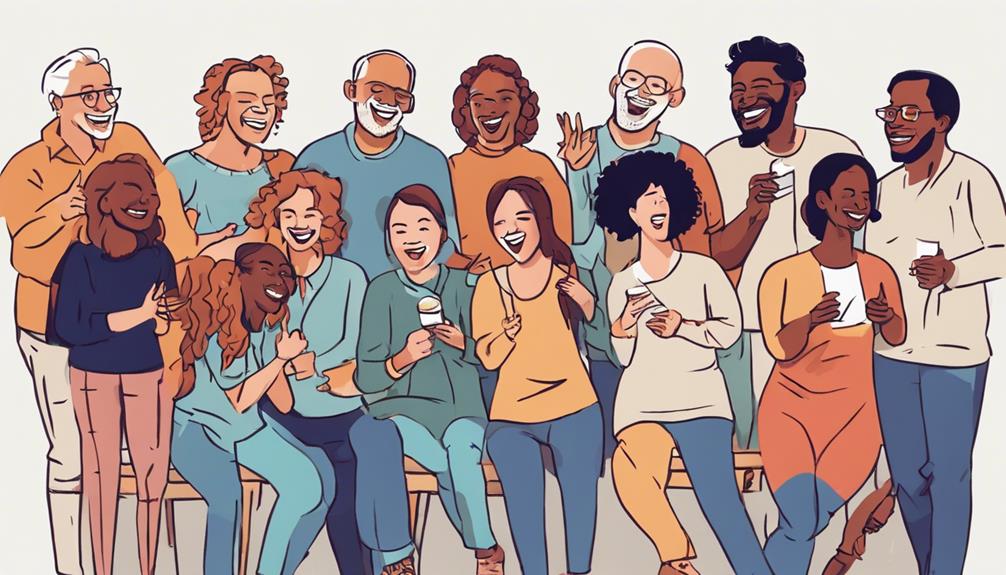
Imagine a world where hands speak volumes, and silence is a language of its own. In the realm of Deaf meetups, connections go beyond words, creating a tapestry of shared experiences that resonate with authenticity.
As we navigate the landscape of upcoming events tailored for the Deaf community, one can't help but feel drawn to the vibrancy and inclusivity these gatherings offer. From engaging in enriching conversations to exploring new avenues of expression, the allure of these meetups is undeniable.
Join us as we uncover the hidden gems of Deaf culture waiting to be discovered.
Key Takeaways
- Engage in immersive ASL practice and skill enhancement through conversations, games, and networking.
- Explore diverse artistic expressions and connect with talented deaf artists in a supportive environment.
- Foster wellness and community building through inclusive yoga, meditation, picnics, and BBQs.
- Celebrate Deaf culture, storytelling, and social connections through engaging events like game nights and artistic showcases.
Sign Language Conversation Practice
Sign language conversation practice meetups offer a welcoming space for individuals to enhance their ASL skills through engaging interactions with fluent signers and fellow learners. These gatherings provide a valuable opportunity for those learning ASL to immerse themselves in a supportive environment that fosters growth and confidence in communication. By participating in these Deaf Events, individuals can engage in conversations, storytelling, and discussions solely using American Sign Language, helping them to build fluency and proficiency.
Moreover, these meetups often incorporate fun activities like games, storytelling sessions, and group discussions, making the learning process enjoyable and interactive. Through these engaging experiences, participants not only improve their ASL skills but also form connections within the Deaf community, creating a sense of belonging and camaraderie. Joining these sign language conversation practice meetups can be a transformative experience, enhancing both communication abilities and social connections within the Deaf community.
Deaf Coffee Chat and Networking
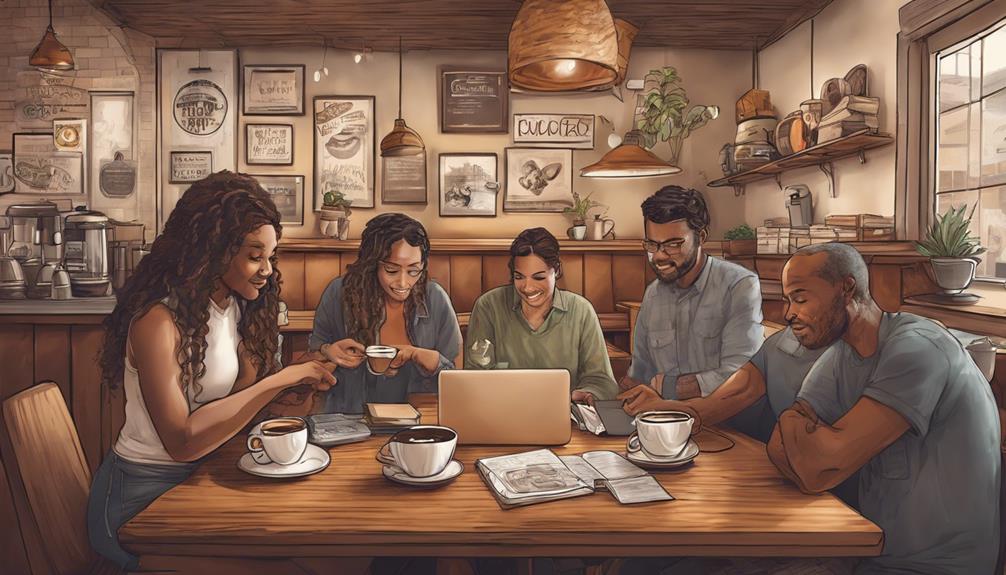
How do Deaf Coffee Chat events create a welcoming space for individuals to socialize and network within the deaf community? Deaf Coffee Chat events offer a supportive environment for practicing American Sign Language (ASL) skills and connecting with others who are part of the deaf community.
Here are three ways these meetups facilitate networking and socializing:
- Comfortable Settings: These events often take place in local coffee shops or cafes, providing a relaxed atmosphere for attendees to engage in conversations using sign language.
- Community Building Activities: Deaf Coffee Chats may include icebreakers, games, and discussions that help foster a sense of community and camaraderie among participants.
- Friendship and Support: Attending these gatherings can help individuals build friendships, share experiences, and feel a sense of belonging within the deaf community, creating a platform for networking and mutual support.
Deaf Coffee Chat events serve as valuable opportunities for deaf individuals to come together, socialize, practice ASL, and forge meaningful connections within their community.
ASL Storytelling Night
ASL Storytelling Night events offer a captivating platform for deaf storytellers to share their narratives in American Sign Language, celebrating the richness and creativity of Deaf culture. These gatherings provide a unique opportunity for individuals to immerse themselves in the visual language and narrative traditions of the Deaf community.
Participants can experience the beauty and expressiveness of ASL storytelling in a vibrant and engaging setting, where ASL is celebrated as a powerful storytelling medium. Through these events, the Deaf culture's depth and diversity are showcased, fostering a sense of belonging and appreciation among attendees.
ASL Storytelling Nights play a crucial role in promoting deaf education by highlighting the importance of visual communication and storytelling for Deaf children and learners. By attending these storytelling events, individuals can learn, connect, and be inspired by the creative ways in which ASL is used to convey stories and emotions within the Deaf community.
Deaf Yoga and Meditation Sessions

In our community, Deaf Yoga and Meditation Sessions offer a welcoming space for individuals with hearing impairments to engage in mindful practices tailored to their needs. These sessions cater to the deaf and hard of hearing community, providing a peaceful and accessible environment for participants to practice mindfulness and relaxation techniques. Here's what makes these sessions stand out:
- Inclusive Classes: Certified instructors fluent in sign language lead the classes, ensuring clear communication and understanding for all attendees.
- Physical and Mental Wellness: Participants can benefit from the physical and mental wellness aspects of yoga and meditation in a supportive and welcoming setting.
- Community Building: Deaf Yoga and Meditation Sessions promote holistic well-being and foster a sense of community among individuals with hearing impairments.
If you're interested in getting involved and exploring the benefits of yoga and meditation in a space designed for the deaf and hard of hearing, these sessions offer a unique opportunity for growth and relaxation.
Lip-reading Workshop for Beginners
Enhancing communication skills through lip-reading workshops is a valuable opportunity for beginners seeking to improve their understanding of spoken language visually. These workshops play a crucial role in assisting individuals with hearing loss by providing techniques to decipher speech through lip movements.
For beginners, it can be hard initially to grasp all the nuances, but with practice and guidance, recognizing sounds, words, and phrases becomes more manageable. Lip-reading workshops are an essential part of learning to communicate effectively, especially for those who use hearing aids or have varying degrees of hearing loss.
Practical exercises and strategies offered in these workshops empower participants to enhance their communication abilities and feel more confident in daily interactions. By honing these skills, beginners can navigate conversations with greater ease and bridge the gap between spoken language and visual comprehension.
Deaf Movie Night Out
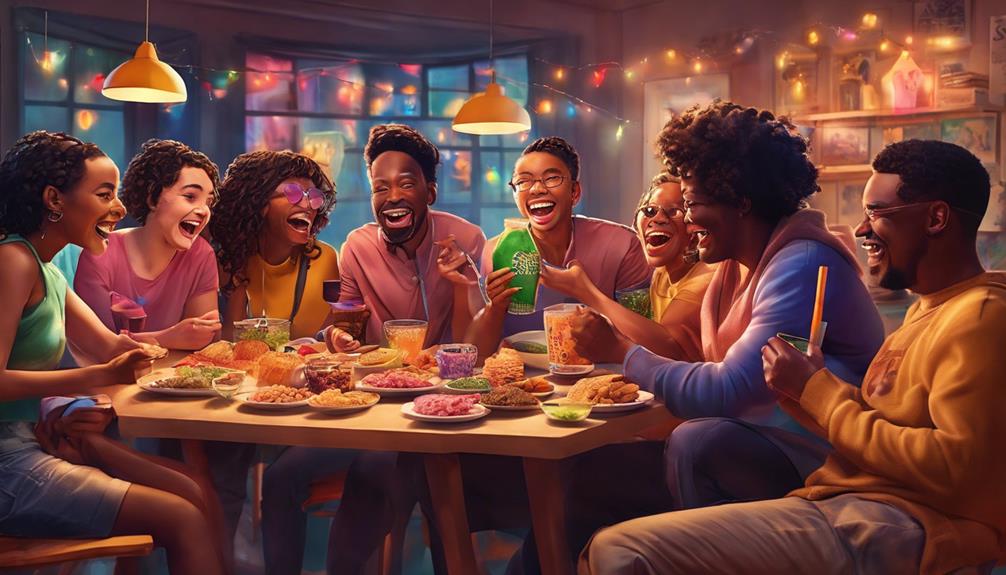
We're excited to shed light on the criteria for movie selections at Deaf Movie Night Out events, ensuring deaf audiences are engaged with films that resonate with their experiences.
We'll explore the importance of venue accessibility, highlighting how these meetups prioritize creating a welcoming space for all participants.
Additionally, we'll delve into the dynamics of group interactions during these movie nights, showcasing how they foster connections and shared experiences within the deaf community.
Movie Selection Criteria
Considering the diverse interests and preferences within our community, Deaf Movie Night Out carefully selects films that offer closed captioning to ensure an inclusive and enjoyable experience for all attendees. Our movie selection criteria focus on catering to the needs of deaf and hard of hearing individuals while also embracing a variety of genres and styles.
Here's how we choose our movies:
- Accessibility: Films must have closed captioning available.
- Inclusivity: Selections consider visual storytelling to accommodate diverse preferences.
- Engagement: Movies are chosen to provide an enjoyable experience for all attendees.
Venue and Accessibility
At Deaf Movie Night Out, our venues prioritize accessibility by offering closed captioning for all movie screenings. We understand the importance of providing a welcoming and inclusive space for all movie enthusiasts.
In addition to closed captioning, movie theaters also provide assistive listening devices for our hearing-impaired guests. Some venues go above and beyond by offering Fidelio and Hearing Loop systems, enhancing the movie-watching experience for everyone.
Deaf-friendly theaters like AMC and Landmark are leading the way in catering to diverse accessibility needs. Performances at theaters such as Alley Theatre ensure that all individuals, regardless of their hearing abilities, can enjoy the magic of movies in a supportive and inclusive environment.
Group Interaction Dynamics
As we come together at Deaf Movie Night Out, the group interaction dynamics create a vibrant and engaging space for deaf individuals to connect over shared movie experiences.
Group Interaction Dynamics at Deaf Movie Night Out:
- Active Participation: Attendees are encouraged to engage in discussions and activities related to the films shown.
- Shared Experiences: The inclusive environment fosters the sharing of thoughts, emotions, and reactions to the movies watched.
- Community Building: Through sign language interpretation, captioned films, and a welcoming atmosphere, friendships are formed, and a sense of community is cultivated.
At Deaf Movie Night Out, the mix of entertainment and social interaction enhances the overall experience, making it a must-attend event for those seeking connection and cultural appreciation.
ASL Book Club Meetings
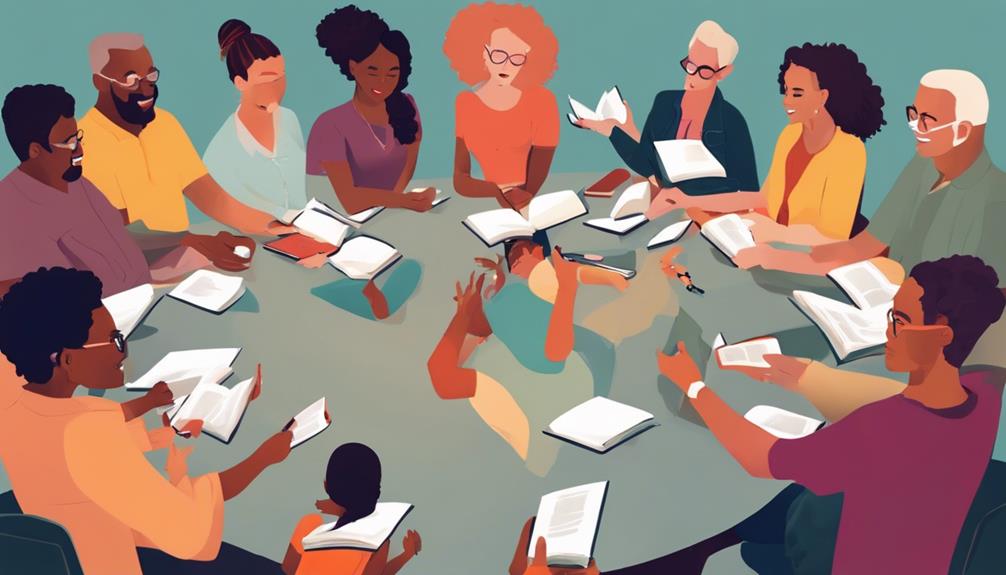
Join us at the ASL Book Club meetings to delve into captivating literature discussions in American Sign Language! These gatherings provide a unique space for deaf individuals to come together and explore the world of books through the beauty of ASL.
Participants engage in interactive conversations about various literary works, sharing their thoughts, interpretations, and emotions in a visually rich and expressive manner.
ASL Book Clubs offer more than just a reading group; they create a sense of community where members can connect, learn from one another, and appreciate the diversity of deaf culture. From deaf-related literature to works by deaf authors or popular books translated into ASL, the reading selections cater to a wide range of interests, ensuring there's something for everyone to enjoy and discuss.
Deaf Technology Fun Fair
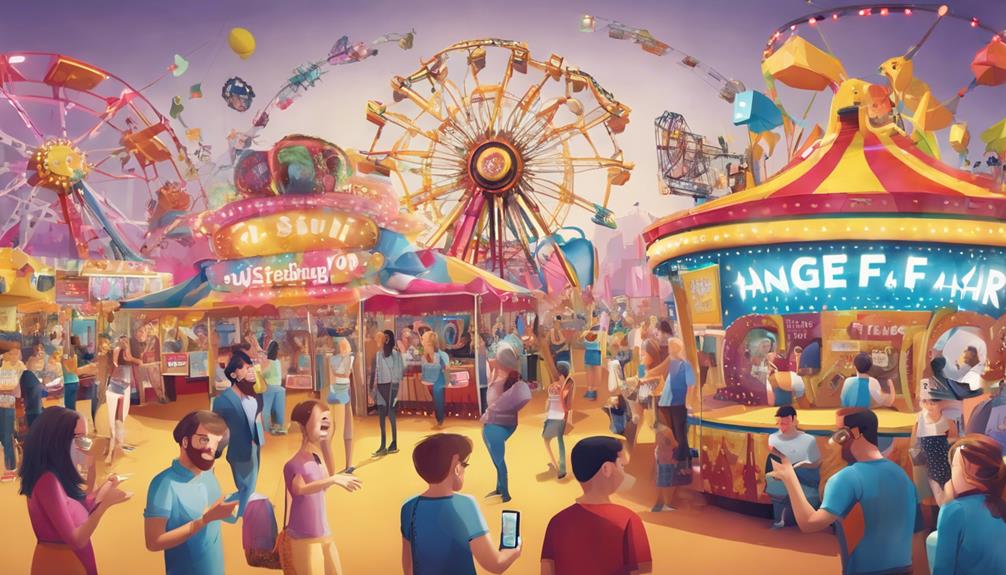
Exploring the vibrant intersection of technology and accessibility, the Deaf Technology Fun Fair offers a captivating showcase of cutting-edge innovations tailored to the deaf and hard of hearing community. At this event, attendees immerse themselves in a world of technological advancements designed to enhance communication and connectivity.
Here's what you can expect at the Deaf Technology Fun Fair:
- Innovative Devices: Explore the latest advancements such as video relay services, text-to-911 options, and smartphone apps specifically crafted to improve communication accessibility for the deaf and hard of hearing.
- Hands-On Demonstrations: Engage in interactive workshops and experience firsthand demonstrations of how these cutting-edge tools work, empowering attendees with practical knowledge and skills.
- Networking Opportunities: Connect with experts, developers, and advocates in the field of deaf technology. This fair provides a platform for learning, networking, and staying updated on the technological solutions available to enhance daily communication needs. Join us to discover how these tools can revolutionize your communication experience!
Sign Language Poetry Slam
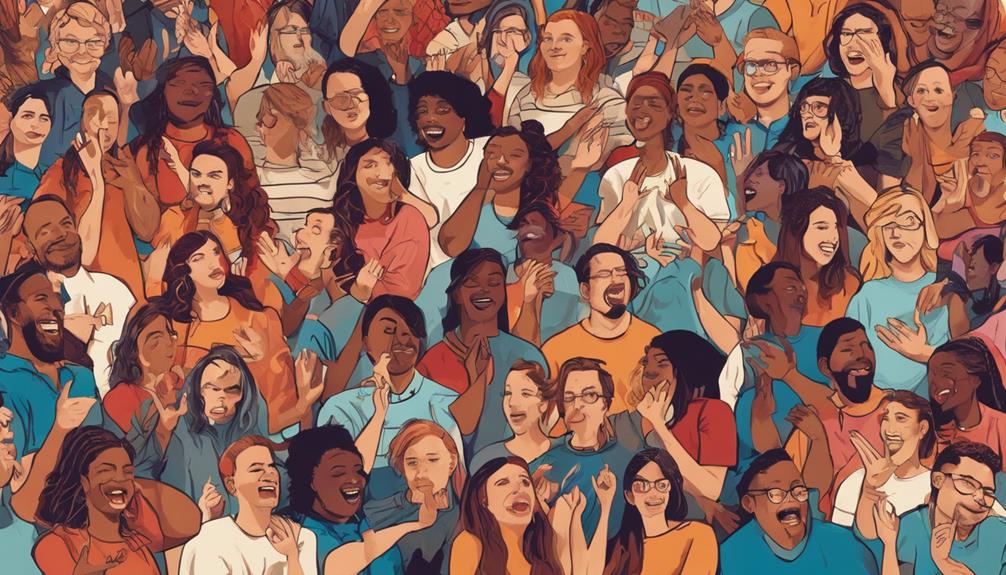
Sign Language Poetry Slam events are vibrant platforms where poets, both deaf and hearing, express their emotions and stories through visually captivating sign language performances.
These gatherings not only showcase creative expression through ASL but also foster community bonding through the shared love of poetry.
Creative Expression Through ASL
Engage with the vibrant world of artistic expression through American Sign Language at captivating Sign Language Poetry Slam events. Sign Language Poetry Slams offer a unique platform for deaf individuals to unleash their creativity and share their stories through visually stunning performances.
Here's why these events are a must-experience:
- Artistic Showcase: Participants bring emotions, stories, and experiences to life through the beauty of sign language, captivating the audience with their creativity.
- Community Connection: Deaf poets and storytellers connect with the community, fostering a sense of belonging and understanding through shared experiences.
- Cultural Celebration: These events promote cultural appreciation, linguistic diversity, and inclusivity within the deaf community, showcasing the power of sign language as a form of artistic expression.
Community Bonding Through Poetry
Gathering at Sign Language Poetry Slam events allows individuals, both deaf and hearing, to form strong bonds through the shared appreciation of poetry in American Sign Language. These events serve as platforms for creative expression and community building. Through visually captivating performances, participants convey deep emotions and intricate narratives using hand movements and facial expressions. Attendees immerse themselves in the beauty and artistry of signed poetry, fostering inclusivity and understanding among diverse audiences. To highlight the impact of Sign Language Poetry Slams, consider the following:
| Benefits of Sign Language Poetry Slam Events |
|---|
| Fosters community bonding |
| Encourages creative expression |
| Promotes linguistic appreciation |
Celebrating Deaf Culture
Celebrating the vibrant richness of Deaf culture through the expressive artistry of poetry in American Sign Language fosters a profound sense of connection and understanding among participants. Sign Language Poetry Slam events offer a platform for deaf poets to showcase their creativity and highlight the beauty of sign language communication.
Attendees immerse themselves in the power of visual storytelling and linguistic expression, experiencing a vibrant and inclusive environment that celebrates diversity. Through these poetry performances, cultural awareness, language appreciation, and community connection within the deaf and hearing-impaired community are promoted.
Join us in celebrating the art, culture, and language of the Deaf community at these enriching Sign Language Poetry Slam events.
Deaf Karaoke Night
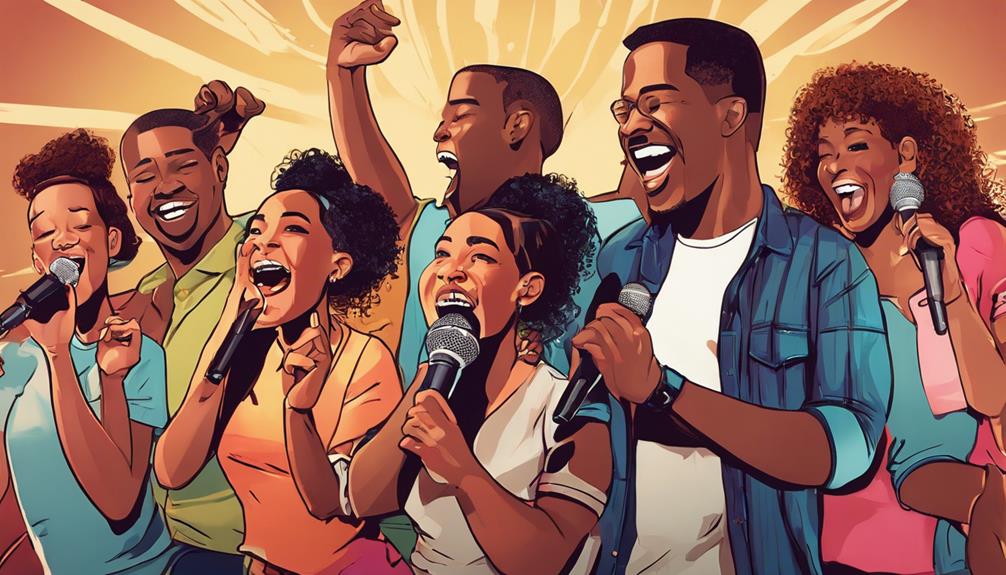
Immerse yourself in the vibrant world of Deaf Karaoke Nights, where music becomes a bridge connecting the deaf community through shared talents and joyful expression. These inclusive and accessible music events offer a platform for deaf individuals to showcase their singing skills and have a great time. Participants can sing along with lyrics displayed on screens or through sign language interpreters, ensuring everyone can join in the fun.
Deaf Karaoke Nights go beyond just singing; they create a supportive and engaging environment for socializing and connecting within the deaf community. It's a place where cultural diversity is celebrated, and the joy of music is shared by all. Whether you're a seasoned performer or just looking to have a good time, these events welcome everyone to come together, enjoy music, and experience the beauty of deaf culture through the universal language of song.
ASL Cooking Class Gatherings
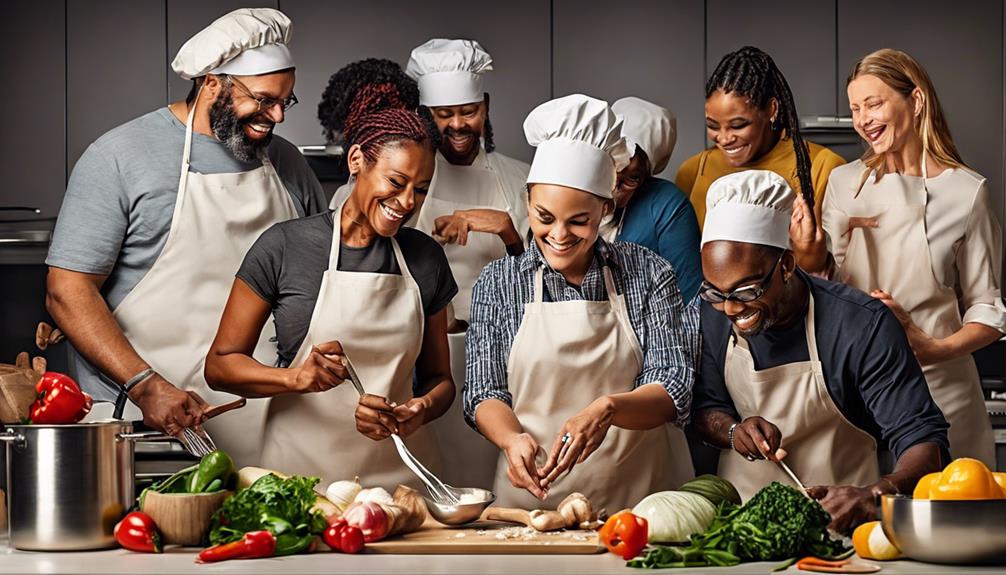
Exploring the vibrant intersection of sign language and culinary arts, ASL cooking class gatherings offer a unique blend of language learning and hands-on cooking experiences. These meetups provide a supportive environment for individuals to enhance their ASL communication skills through interactive cooking sessions. Participants can engage in hands-on cooking experiences while practicing American Sign Language in a social setting, creating a dynamic learning environment.
Key Highlights:
- Language Learning: ASL cooking classes offer a practical way to learn sign language while honing culinary skills, combining education with creativity.
- Community Building: Attendees bond over a shared love for cooking and sign language, fostering a sense of belonging and camaraderie within the group.
- Cultural Exchange: These gatherings promote inclusivity and understanding between deaf and hearing individuals, creating a space for fun, education, and connection through shared passions.
Deaf Artists Exhibition and Meetup
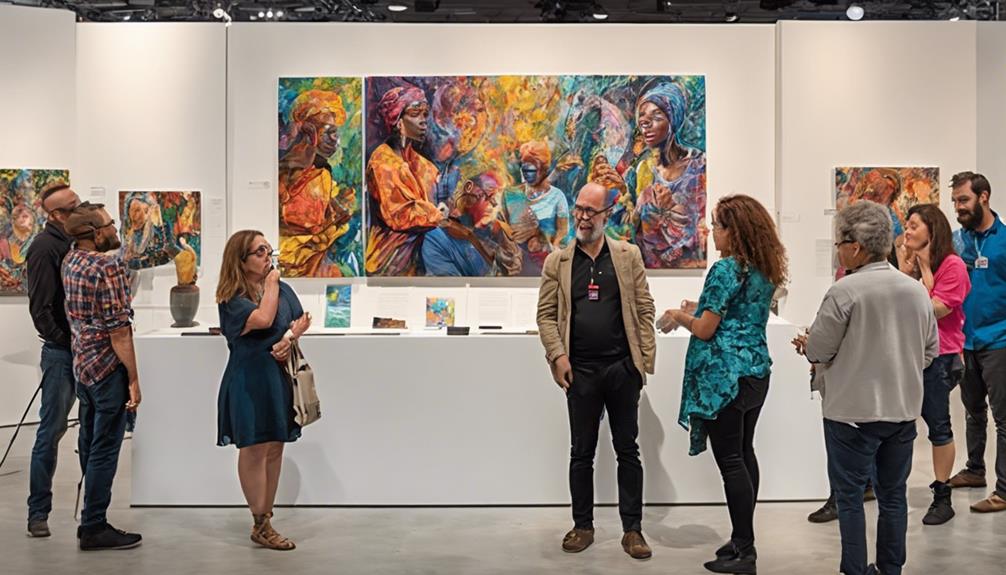
Let's celebrate the vibrant creativity of deaf artists at the Deaf Artists Exhibition and Meetup.
This event is a fantastic opportunity to admire a diverse range of artistic expressions, from paintings to sculptures and photography.
Join us to connect with talented creatives, learn about their inspirations, and show your support for the deaf artistic community.
Artistic Talent Showcase
The Artistic Talent Showcase offers a vibrant platform for deaf artists to showcase their creative works and connect with both fellow artists and the community. Attendees can immerse themselves in a world of diverse artistic expressions and gain insight into the unique perspectives of deaf artists.
Here's why the showcase is a must-visit:
- Exhibition of Creativity: Experience a range of artworks spanning various mediums, from paintings to sculptures, each telling a story through the lens of deaf artists.
- Community Connection: Engage with a supportive community that values and celebrates the talents of deaf artists, fostering a sense of belonging and appreciation.
- Celebration of Diversity: Embrace the richness of deaf artistry and contribute to a more inclusive and innovative artistic landscape.
Networking With Creatives
Engage with a vibrant community of deaf artists and creatives at the Deaf Artists Exhibition and Meetup, fostering connections and celebrating diverse artistic expressions. This event provides a platform for deaf artists to showcase their work, offering networking opportunities with creative individuals in the deaf community.
Explore a variety of art forms including painting, sculpture, photography, and more, each representing unique perspectives and experiences. Connect with talented deaf artists, gaining insight into their creative processes and inspirations.
Join like-minded individuals passionate about art and creativity in a deaf-friendly environment, where innovation and collaboration thrive. Don't miss this chance to network with creatives, exchange ideas, and be inspired by the rich tapestry of deaf artistic talent.
Sign Language Game Night
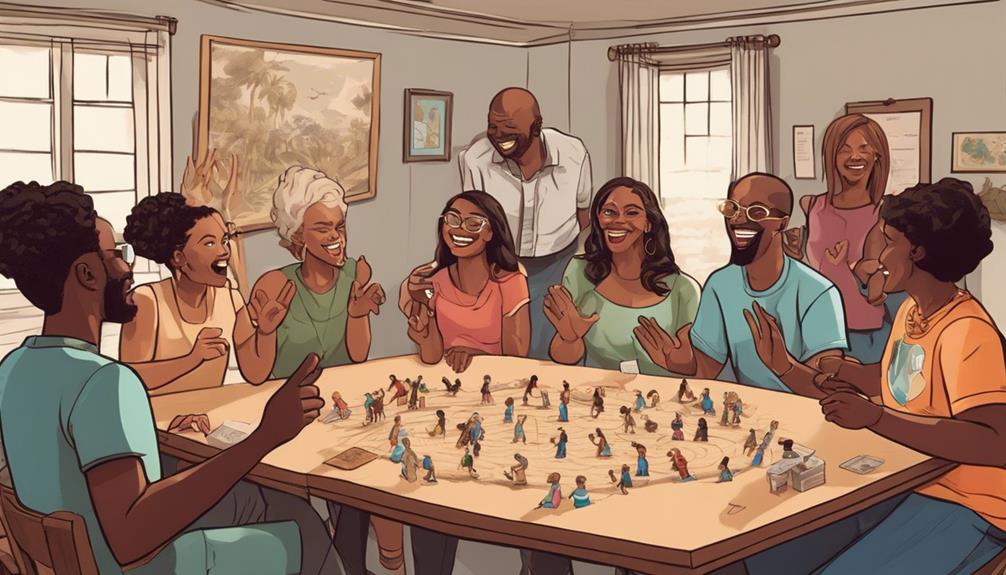
During Sign Language Game Night events, participants come together to enjoy interactive games that enhance their ASL skills and foster a sense of community. These gatherings offer a unique opportunity to practice sign language in a fun and engaging way, promoting both personal growth and social connections within the deaf community.
Here's why you should consider joining one:
- Skill Development: Engaging in games specifically designed around sign language provides a practical and enjoyable way to improve communication abilities.
- Social Interaction: These meetups create a supportive environment where deaf and hearing individuals can come together, socialize, and form lasting friendships while honing their signing skills.
- Cultural Connection: By participating in Sign Language Game Nights, attendees not only enhance their sign language proficiency but also contribute to the promotion of cultural awareness and the strengthening of community bonds.
Deaf Community Picnic and BBQ
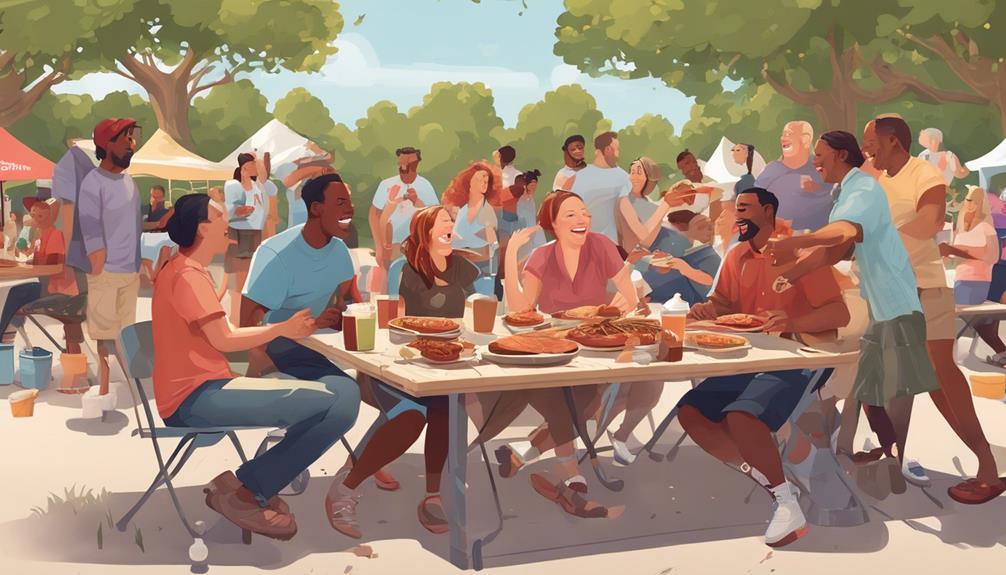
As we gather for the Deaf Community Picnic and BBQ, we anticipate a day filled with camaraderie, laughter, and shared experiences. This event is a popular social gathering where deaf individuals come together to enjoy outdoor activities and connect with others in a welcoming environment. It's a fantastic opportunity to engage in games, activities, and savor delicious food while using American Sign Language (ASL) to communicate and bond with fellow community members.
Here's a glimpse of what you can expect at the Deaf Community Picnic and BBQ:
| Activities | Delicious Food | ASL Practice |
|---|---|---|
| Games and fun | BBQ specialties | Conversations in ASL |
| Outdoor bonding | Picnic treats | Learning new signs |
| Socializing | Delectable desserts | Connecting through ASL |
This event fosters a sense of belonging and support within the deaf community, creating lasting memories and strengthening relationships. Join us for a day of fun, connection, and celebration at the Deaf Community Picnic and BBQ!
ASL Dance Party Event
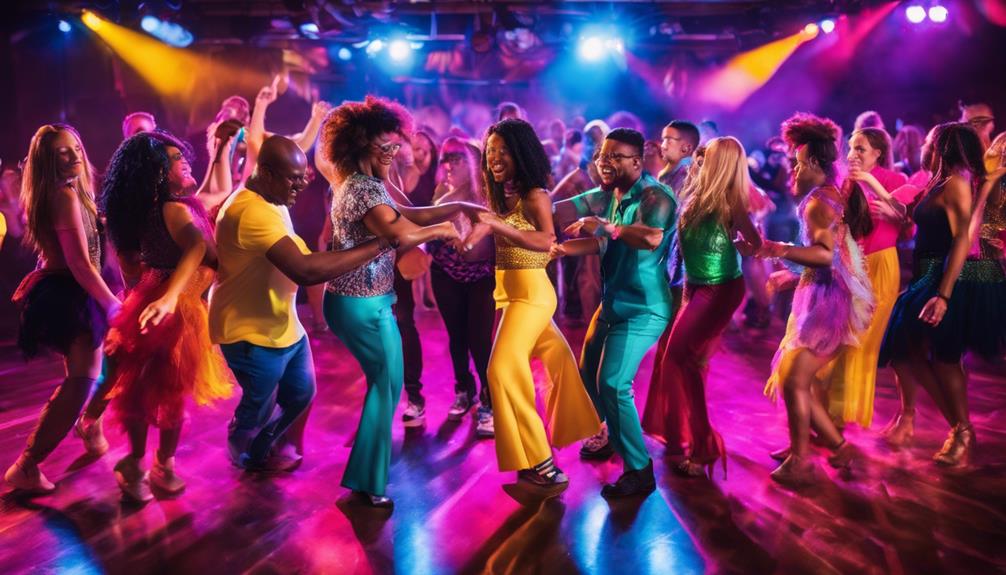
We can't wait to share with you the exciting dance styles and vibrant event locations featured at ASL Dance Party Events.
By discussing these POINTS, we aim to provide a glimpse into the diverse dance experiences and accessible venues available for the deaf and hearing community.
Let's explore how these events blend music, movement, and sign language in a dynamic social setting.
Dance Styles Featured
Incorporating American Sign Language into dance routines, ASL Dance Party events offer a unique and inclusive experience for participants of all skill levels. At these events, you can expect to find a variety of dance styles featured, enhancing the overall atmosphere and enjoyment.
- Hip-Hop: Groove to the beat with hip-hop choreographies that blend fluid movements with energetic vibes.
- Latin Dance: Spice up the dance floor with Latin rhythms like salsa, bachata, and merengue, adding a touch of passion to the party.
- Contemporary Dance: Explore creative expression through contemporary dance forms, allowing for a mix of emotions and storytelling in each movement.
Get ready to immerse yourself in a fusion of dance and sign language at these vibrant and engaging gatherings!
Event Location Details
Venturing into the heart of Houston's vibrant deaf community, the ASL Dance Party Event at the Houston Deaf Network venue promises a night filled with music, dance, and socializing in American Sign Language.
This dynamic event offers attendees the opportunity to interact with other signers, immersing themselves in the rich tapestry of deaf culture. The venue provides a welcoming and inclusive environment for the community to forge connections and create lasting memories.
ASL interpreters will be on hand to facilitate effective communication, ensuring that everyone can fully participate and engage in the festivities. Join us at this unique event where innovation meets celebration, and where the language of music and movement unites us all.
Frequently Asked Questions
Where Can I Meet Deaf Friends?
We can meet deaf friends through local social groups, events, and online platforms. Joining clubs, attending ASL coffee chats, or exploring Meetup.com are great ways to connect.
Engaging in cultural festivals and volunteering at organizations can also help build lasting friendships. By actively participating in these activities, we can create meaningful connections within the deaf community and foster a sense of belonging.
How Do I Find a Deaf Person to Date?
When looking for a deaf person to date, we can explore various avenues. Connecting online through dedicated dating websites and apps specifically designed for the deaf community can be a great starting point.
Attending deaf cultural events or workshops can also be a fantastic way to meet like-minded individuals.
Seeking referrals from friends or family members who are part of the deaf community can lead to meeting someone who appreciates and respects deaf culture.
Where Do Most Deaf Adults Live?
Most deaf adults in the United States live in metropolitan areas with vibrant deaf communities. States like California, Texas, Florida, New York, and Illinois boast significant deaf populations. Cities such as Los Angeles, Houston, Miami, New York City, and Chicago are popular among deaf individuals due to the abundance of community resources.
Accessibility to healthcare, job opportunities, and social events are key factors influencing where deaf adults choose to reside.
Is There a Dating Site for Hearing Impaired?
Yes, there's a dating site designed specifically for the hearing impaired community. It caters to individuals who are deaf, hard of hearing, or use sign language.
Users can connect with like-minded people who understand their unique communication needs. Features like video profiles, chat options, and accessibility tools enhance the user experience.
Signing up on this platform can lead to meaningful relationships and connections within the deaf community.
Conclusion
Joining Deaf meetups is a great way to connect with the community and learn from shared experiences.
Did you know that 1 in 6 adults in the United States have some degree of hearing loss?
By attending these meetups, you can access valuable resources, build relationships, and be part of a supportive and inclusive environment.
Don't miss out on the opportunity to engage with like-minded individuals and expand your knowledge of Deaf culture.
Jamie is one of the creative forces behind the words that resonate with our audience at Deaf Vibes. With a passion for storytelling and advocacy, Jamie delves into topics that matter deeply to the deaf and hard-of-hearing community. Jamie’s articles are crafted with empathy, insight, and a commitment to positive change, from exploring the latest advancements in hearing technologies to shedding light on the everyday challenges and victories of those within the community. Jamie believes in the power of shared stories to inspire action, foster understanding, and create a more inclusive world for everyone.
-
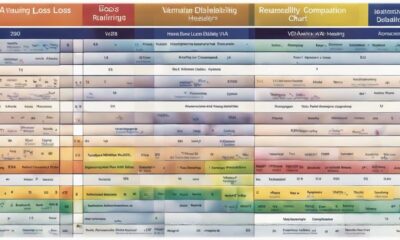
 Navigating the VA System2 months ago
Navigating the VA System2 months agoVA Hearing Loss Rating Chart: Understanding Disability Compensation
-
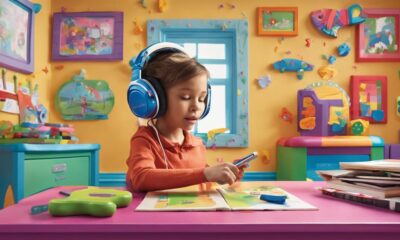
 Therapies and Interventions3 weeks ago
Therapies and Interventions3 weeks ago10 Auditory Processing Goals for Effective Speech Therapy
-

 Vetted2 months ago
Vetted2 months ago15 Best Oticon Hearing Aids to Improve Your Hearing in 2024
-

 Navigating the VA System2 months ago
Navigating the VA System2 months agoUnderstanding Bilateral Hearing Loss VA Rating Criteria
-
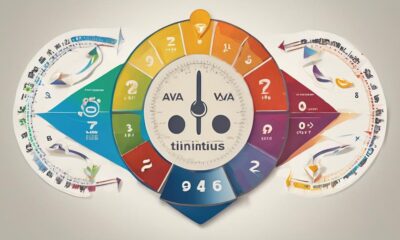
 Tinnitus2 months ago
Tinnitus2 months agoVA's Rating System for Tinnitus and Hearing Loss Explained
-

 Sign Language3 weeks ago
Sign Language3 weeks agoMastering the Art of Signing Letters in Sign Language
-
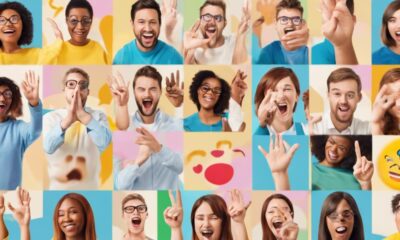
 Sign Language3 weeks ago
Sign Language3 weeks agoSign Language Emoji Translator: How to Communicate With Gestures
-
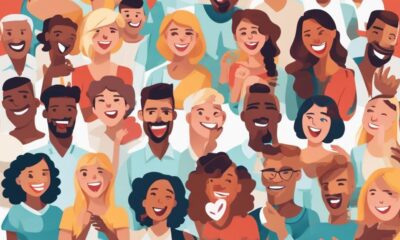
 Living with Hearing Loss3 months ago
Living with Hearing Loss3 months ago10 Deaf-Friendly Dating Sites to Find Your Perfect Match
